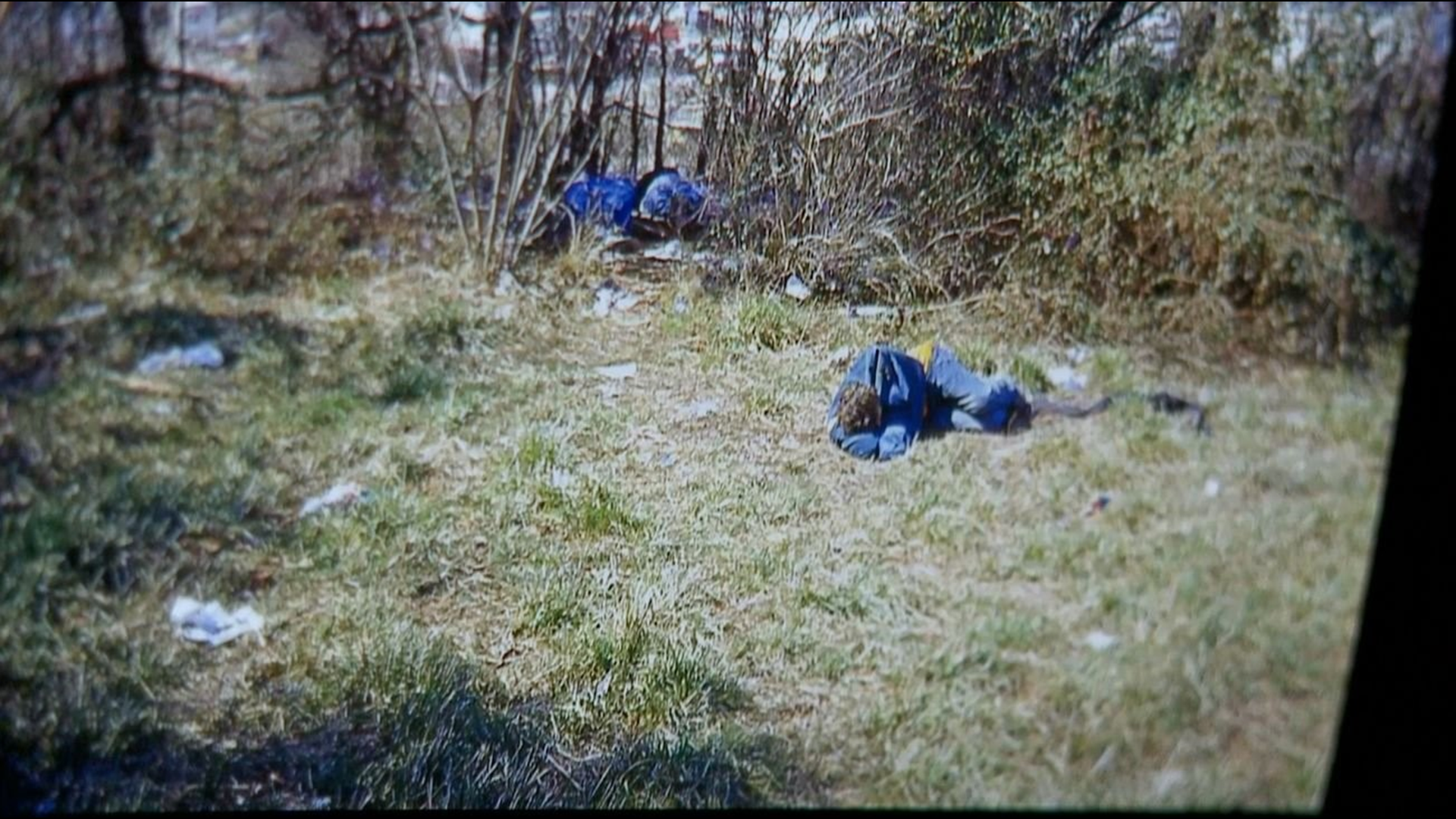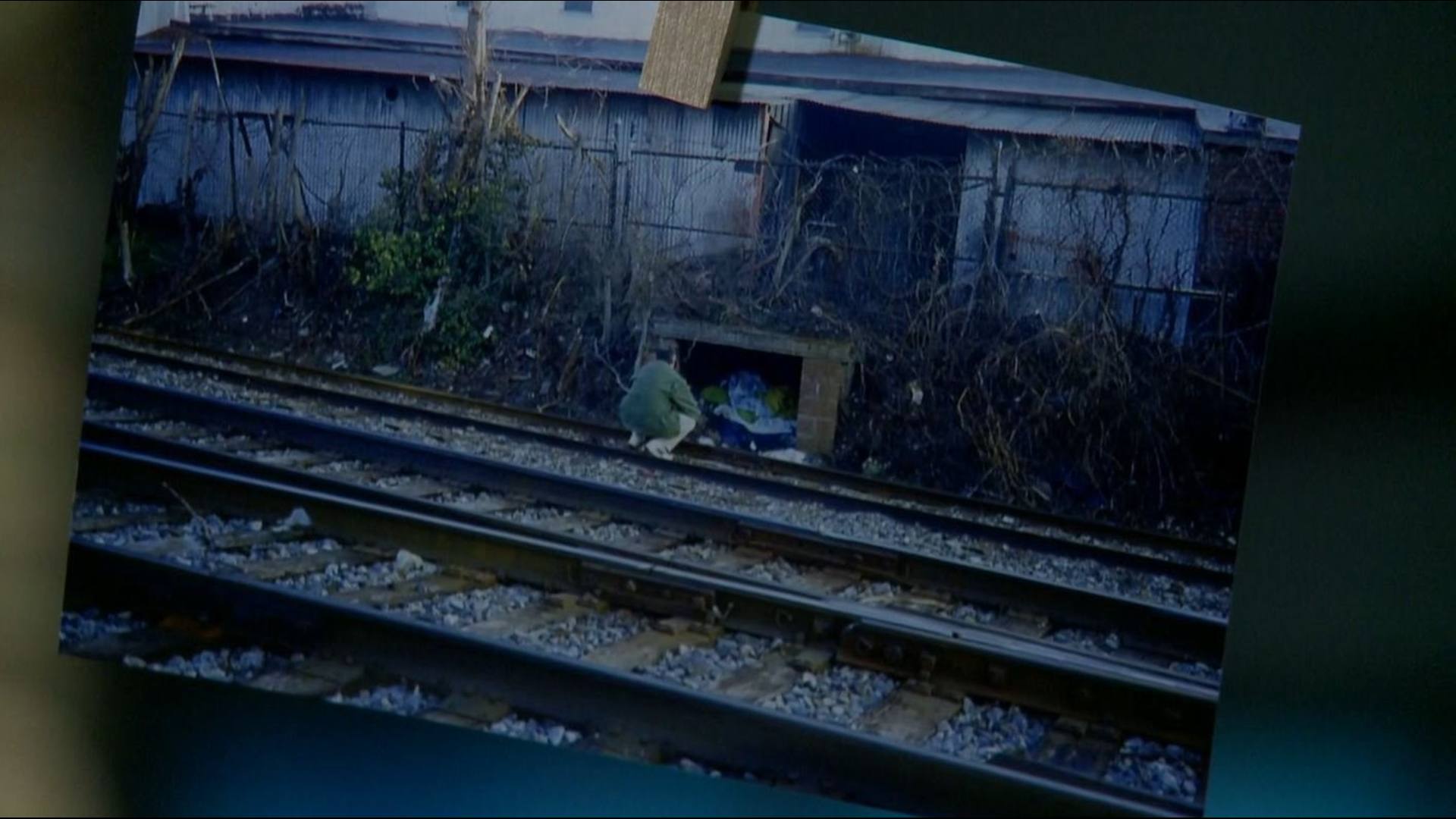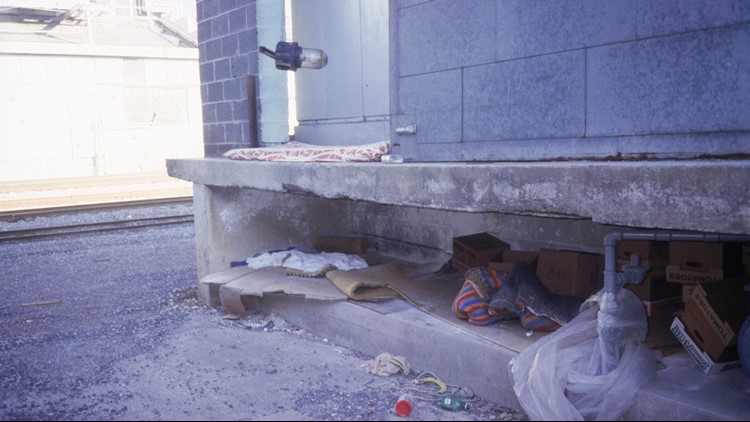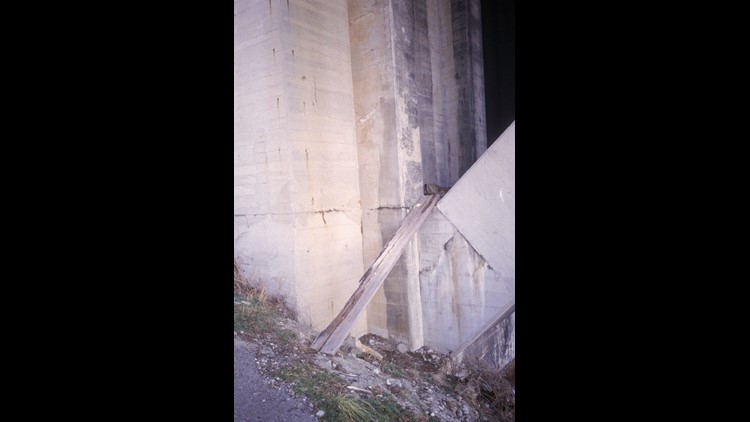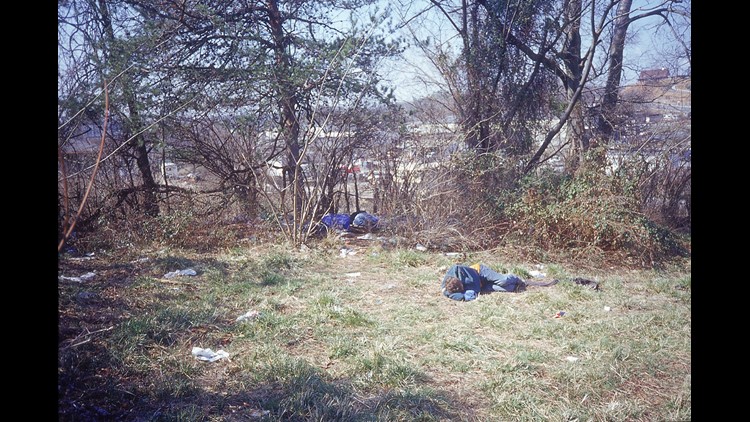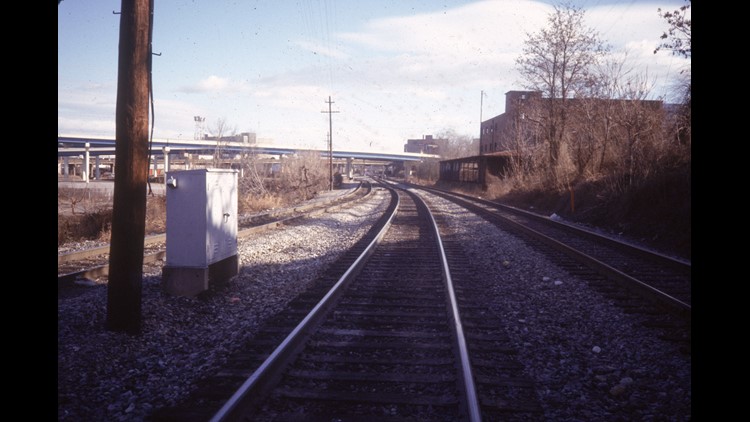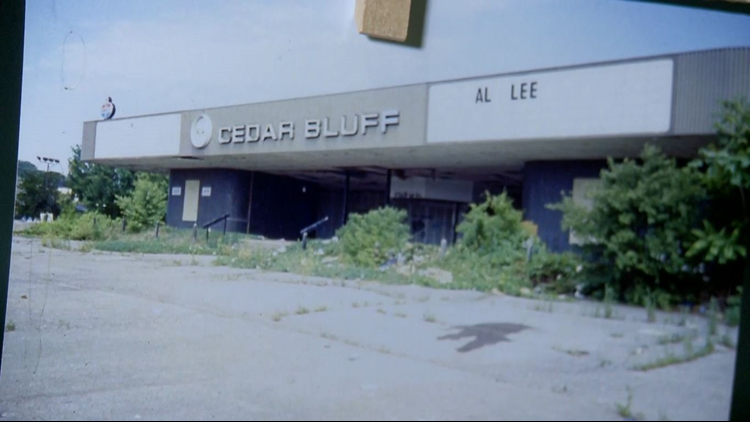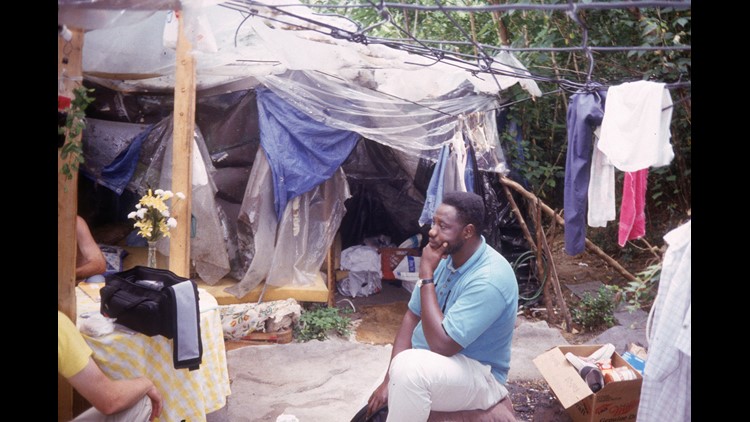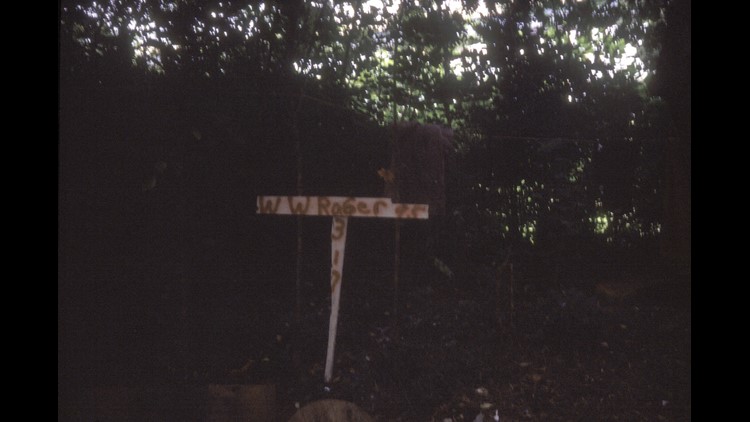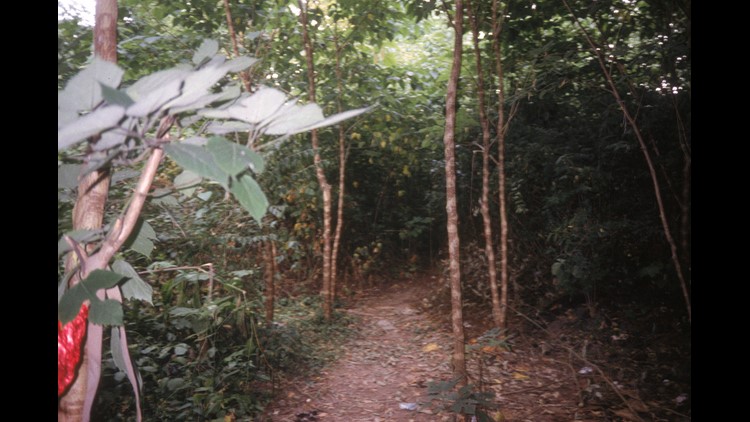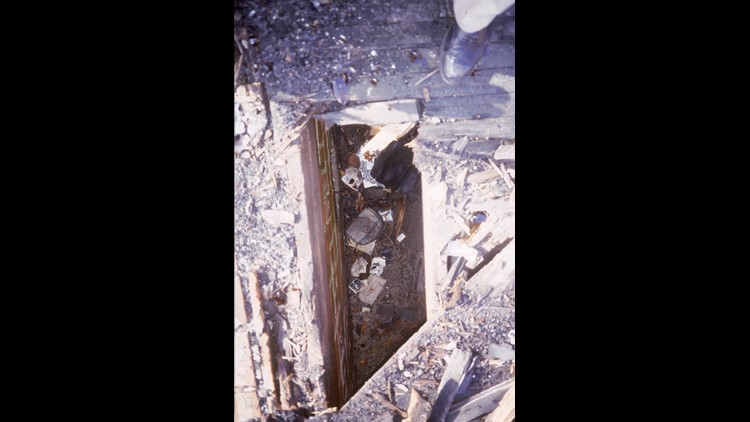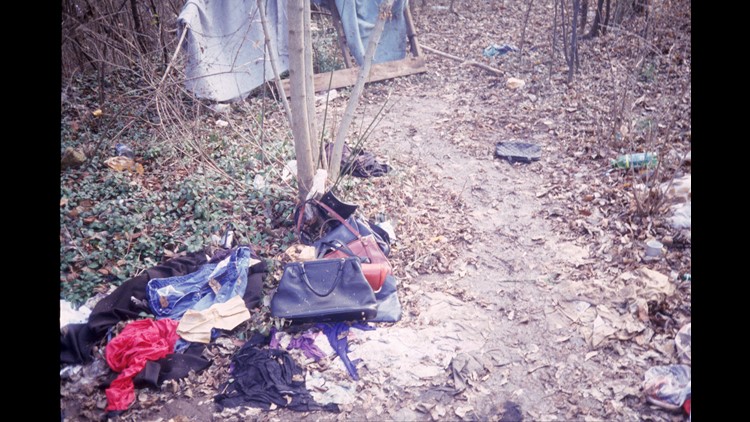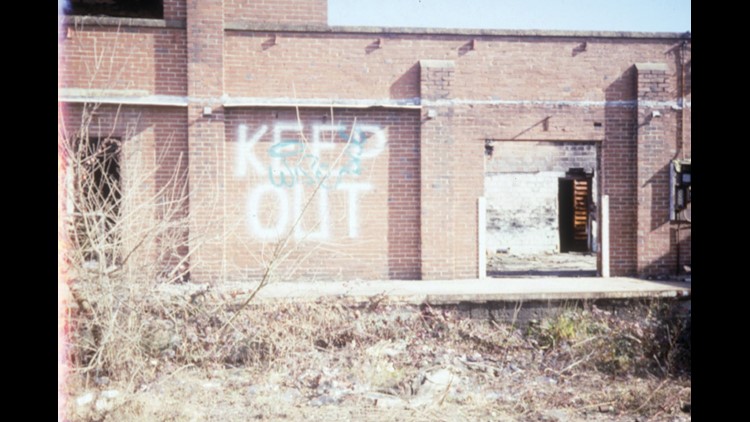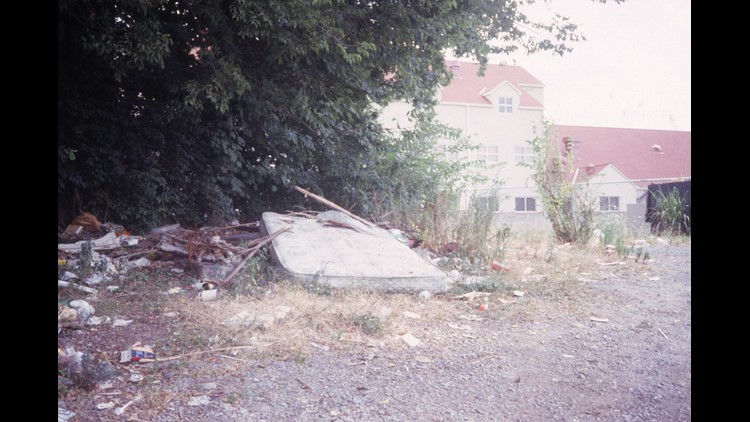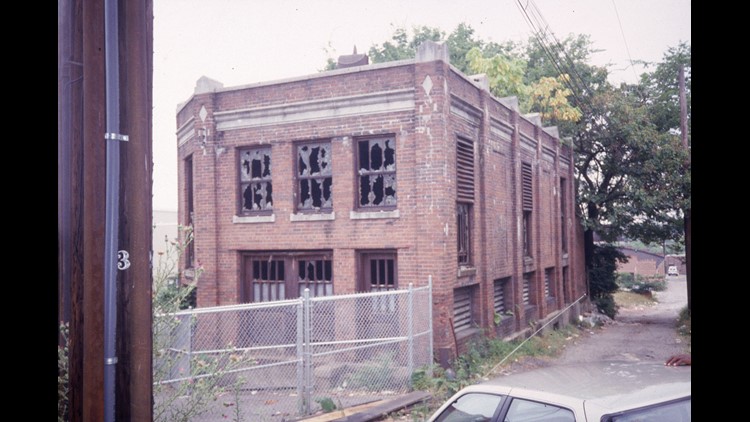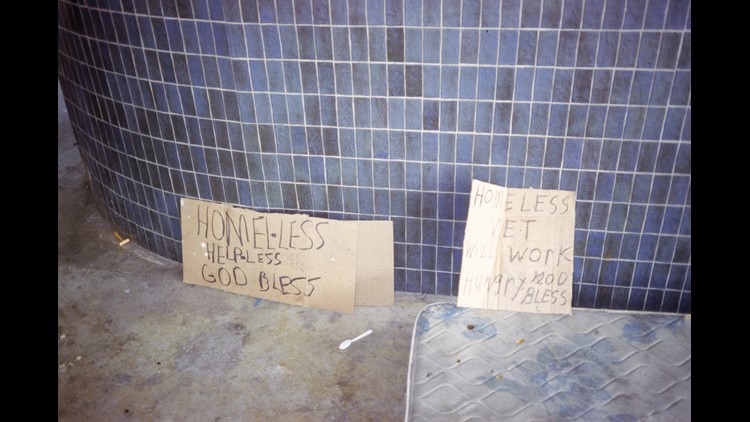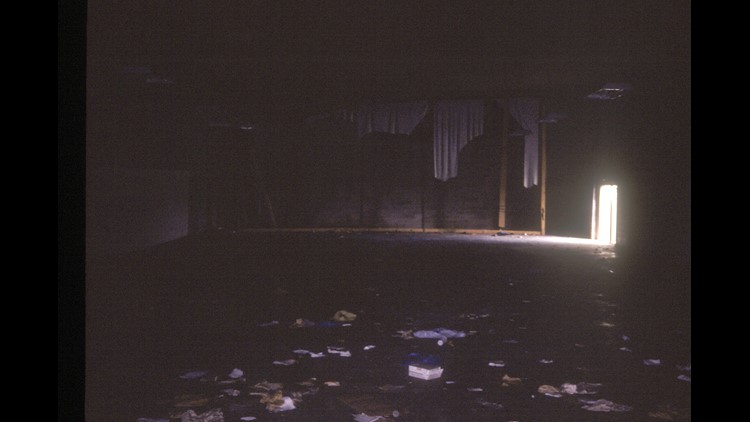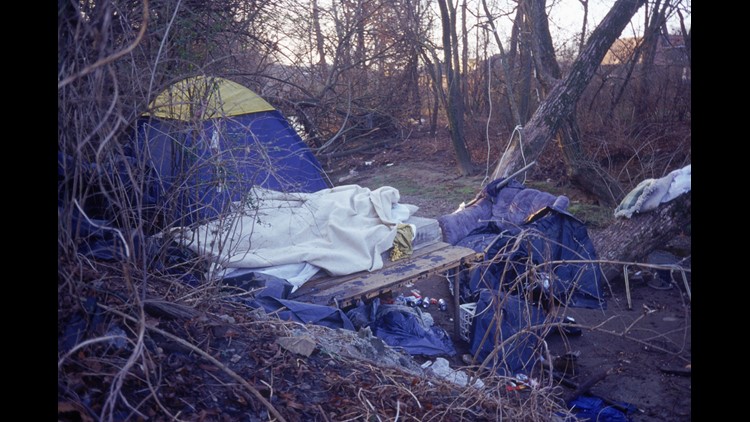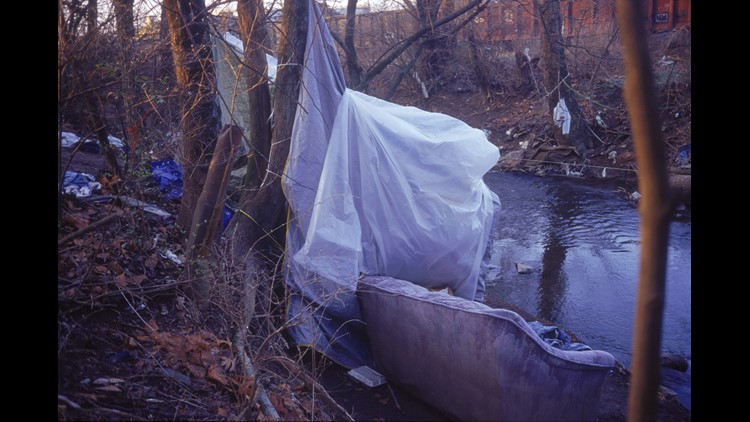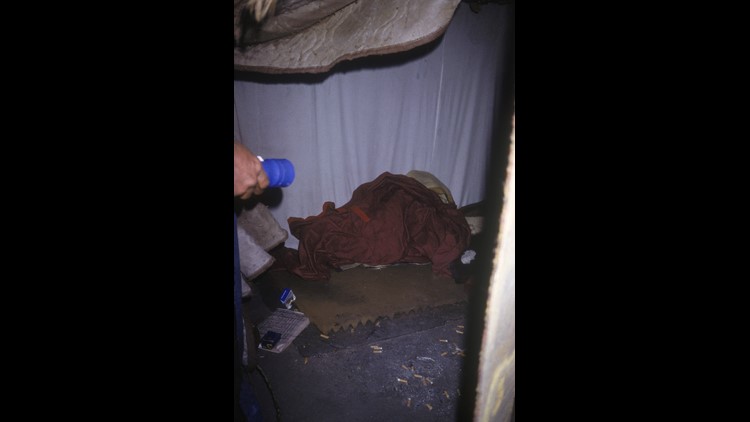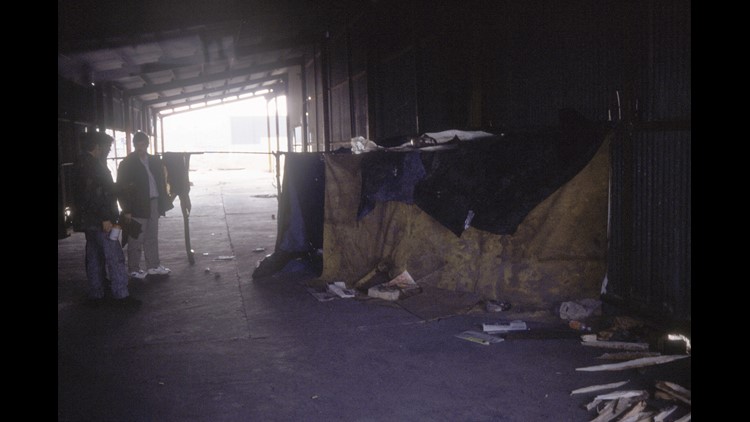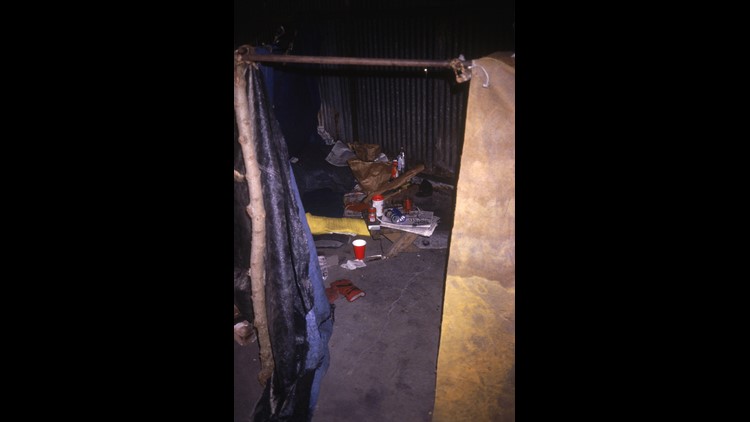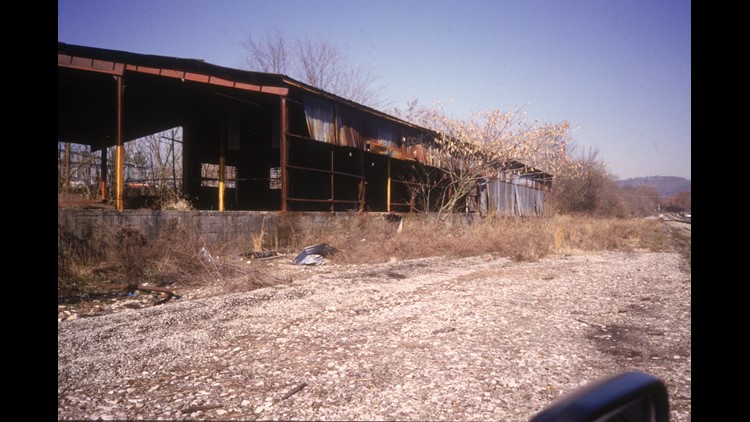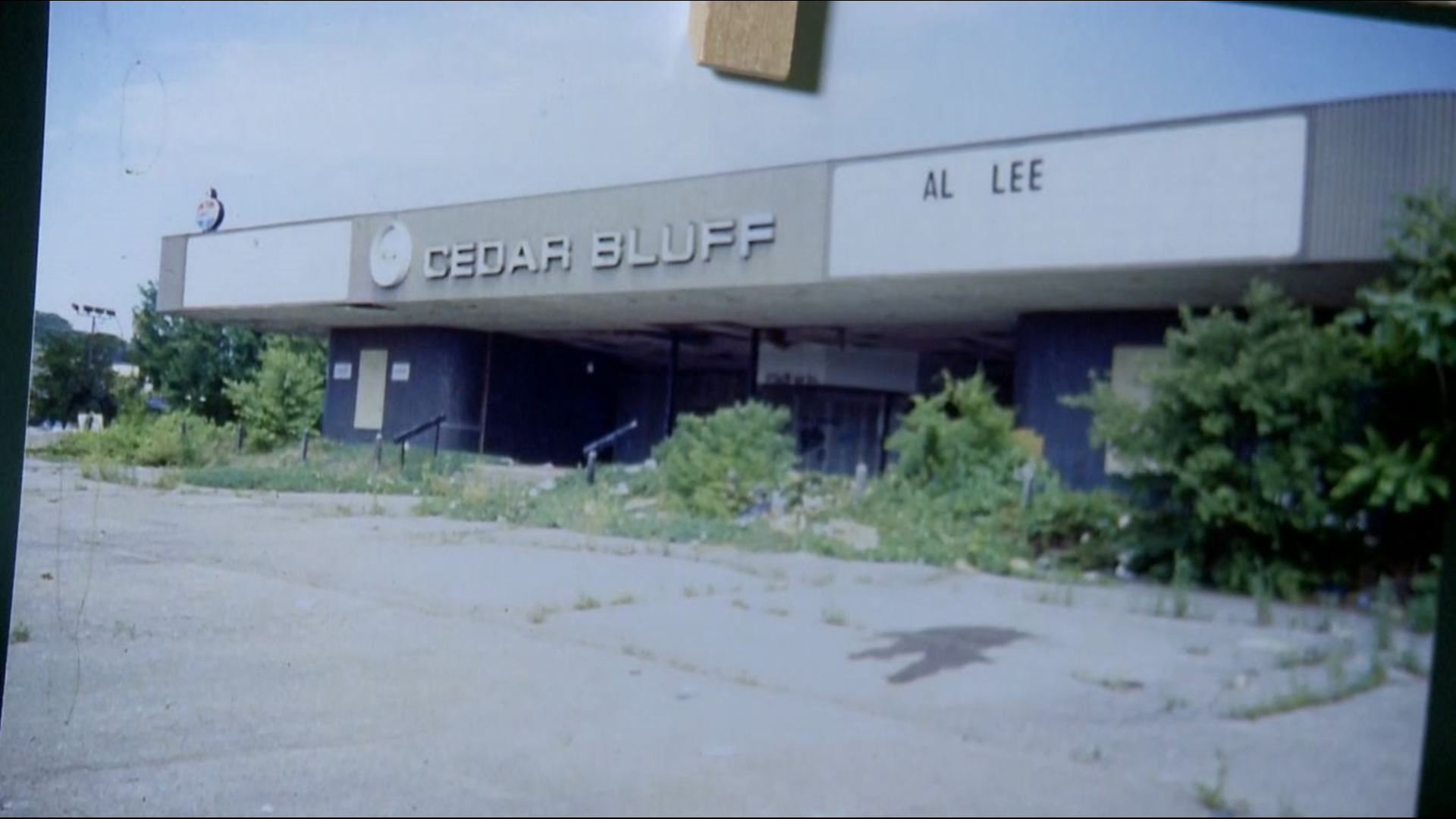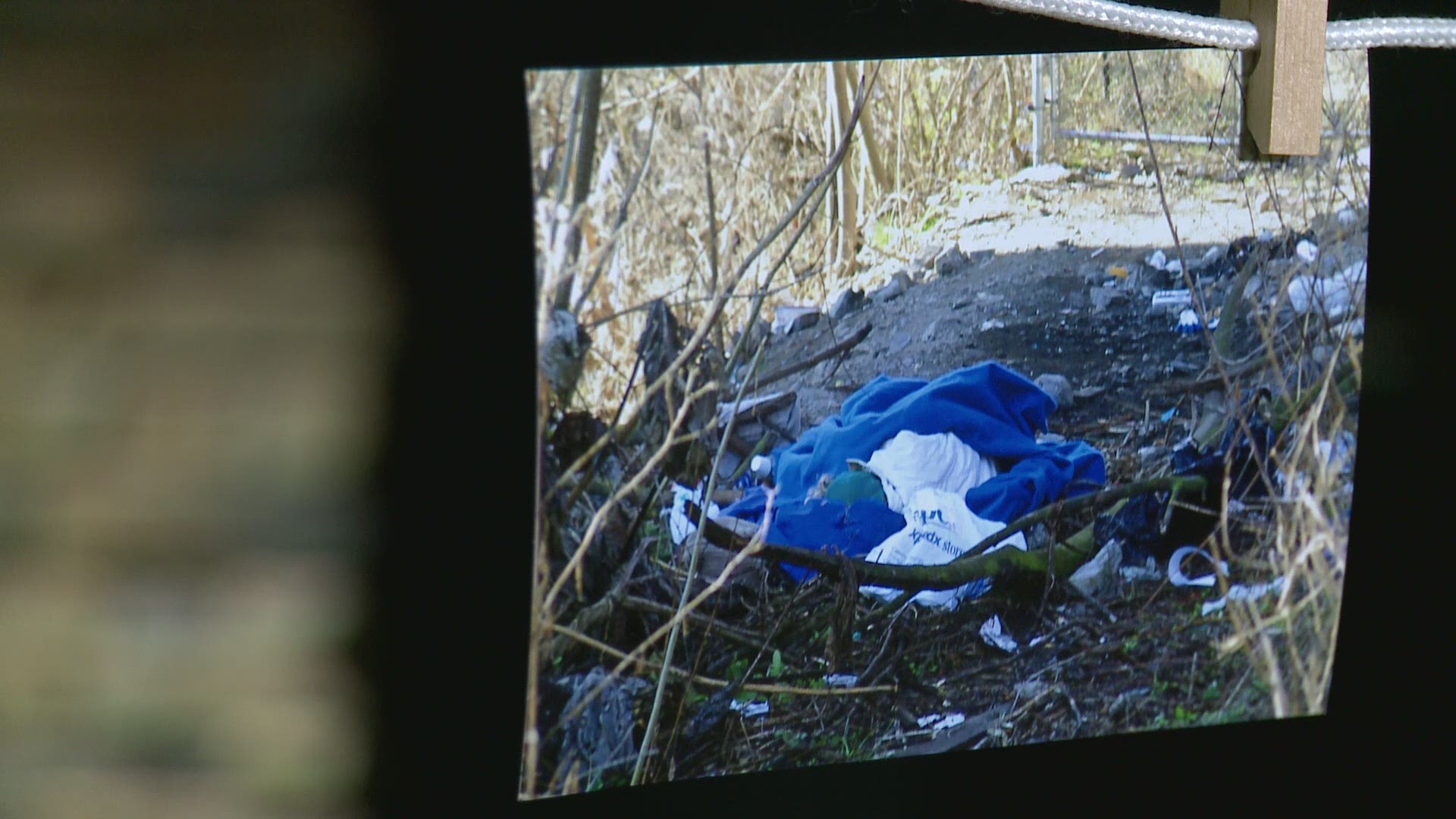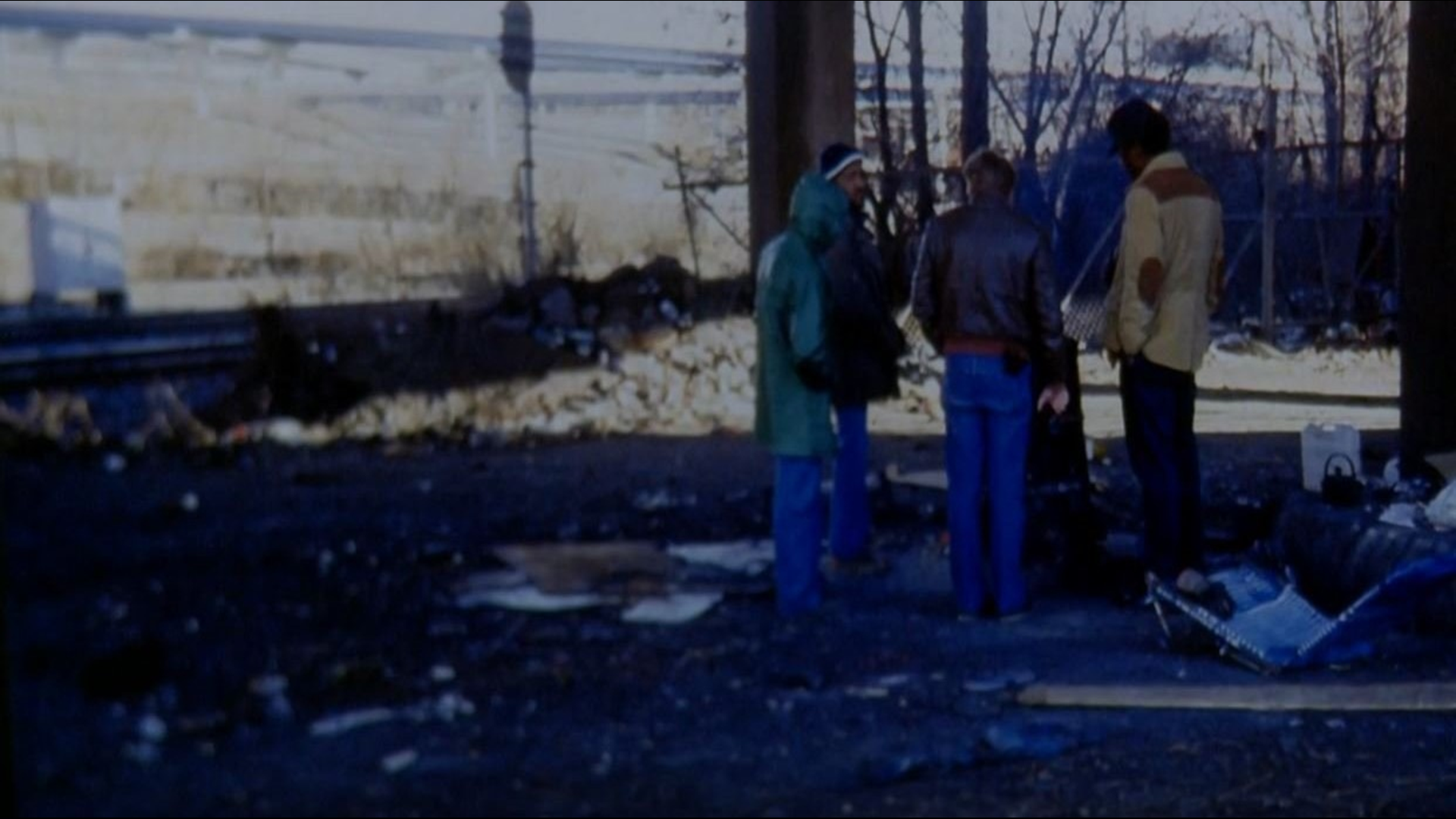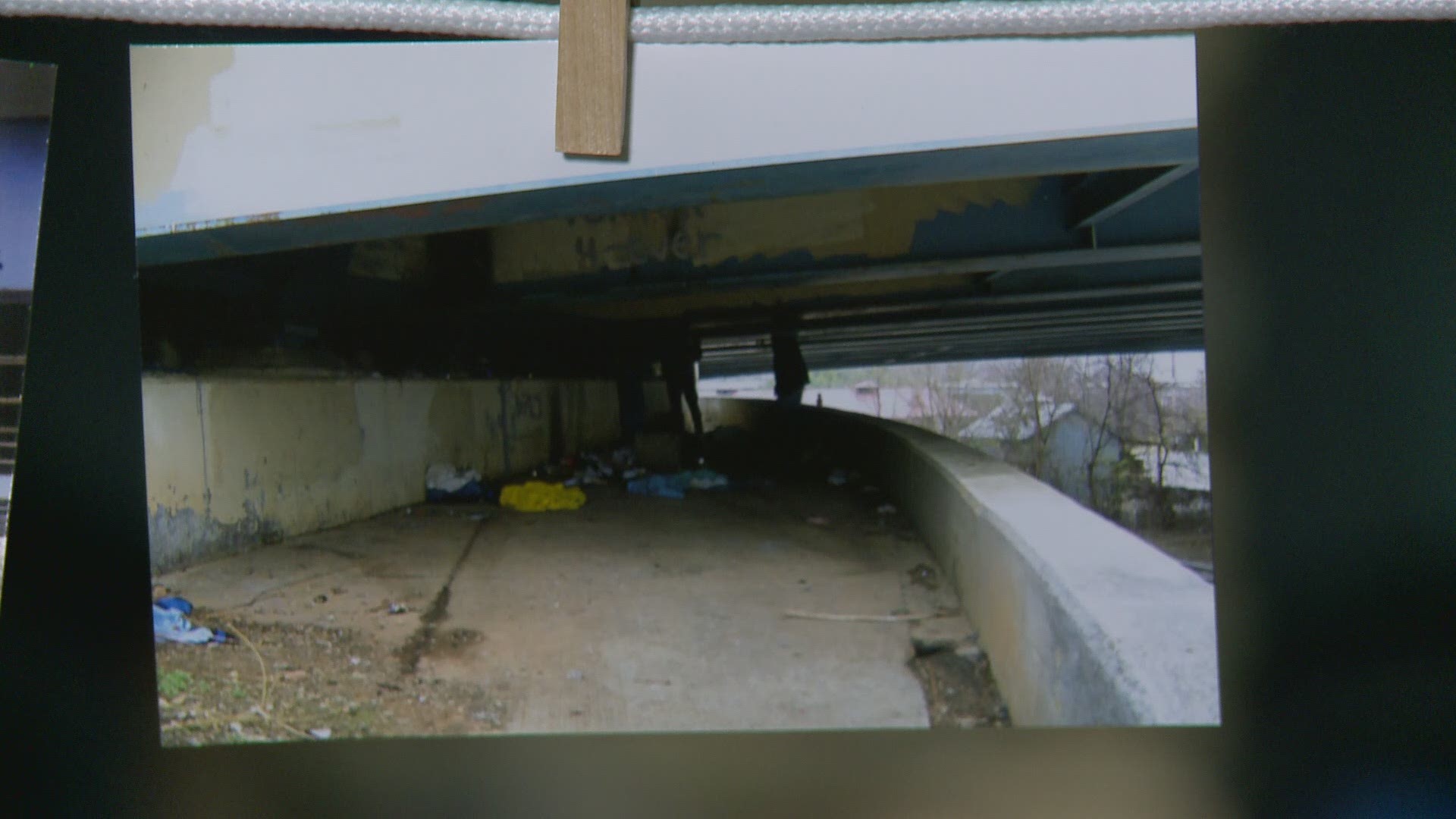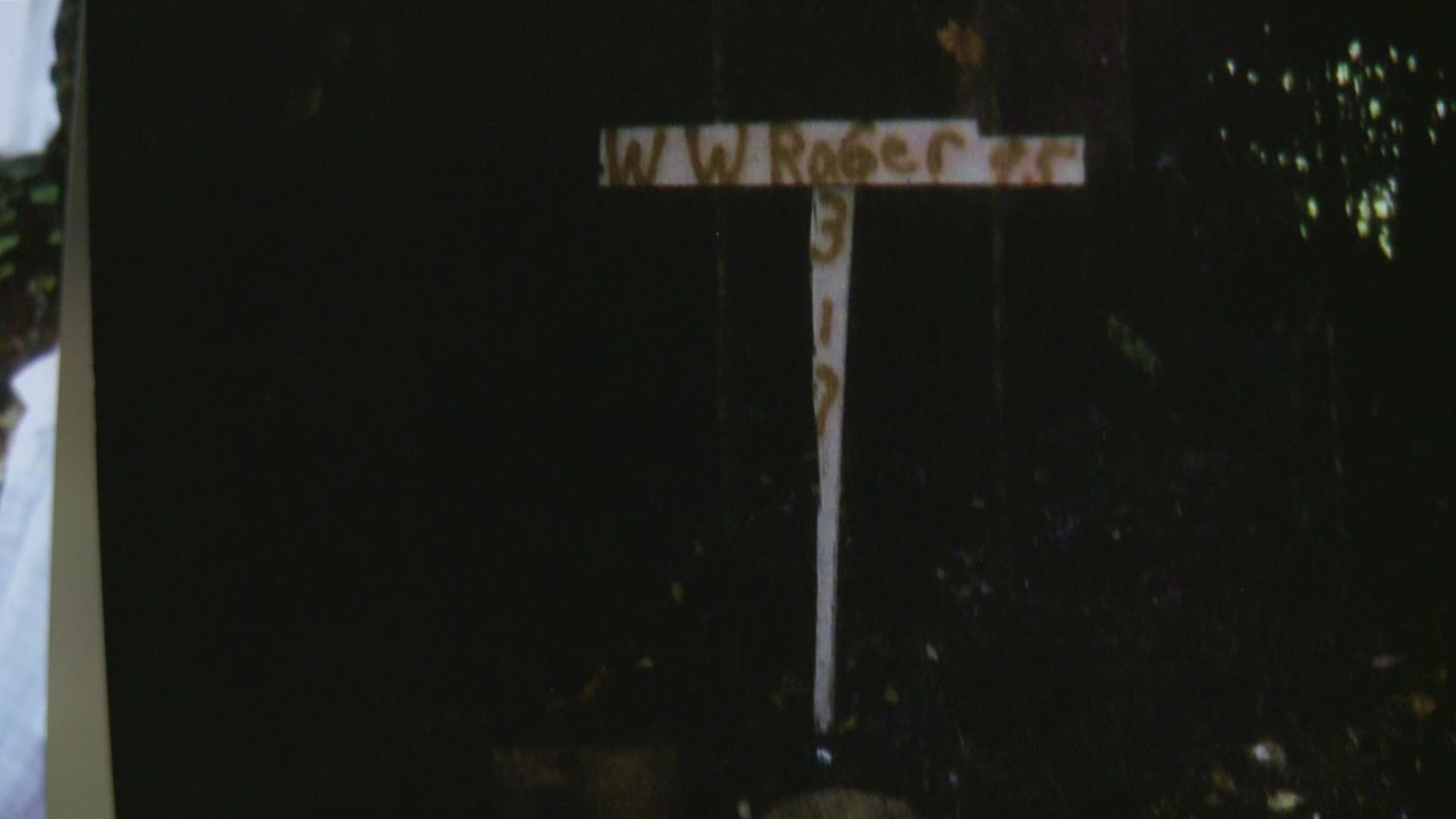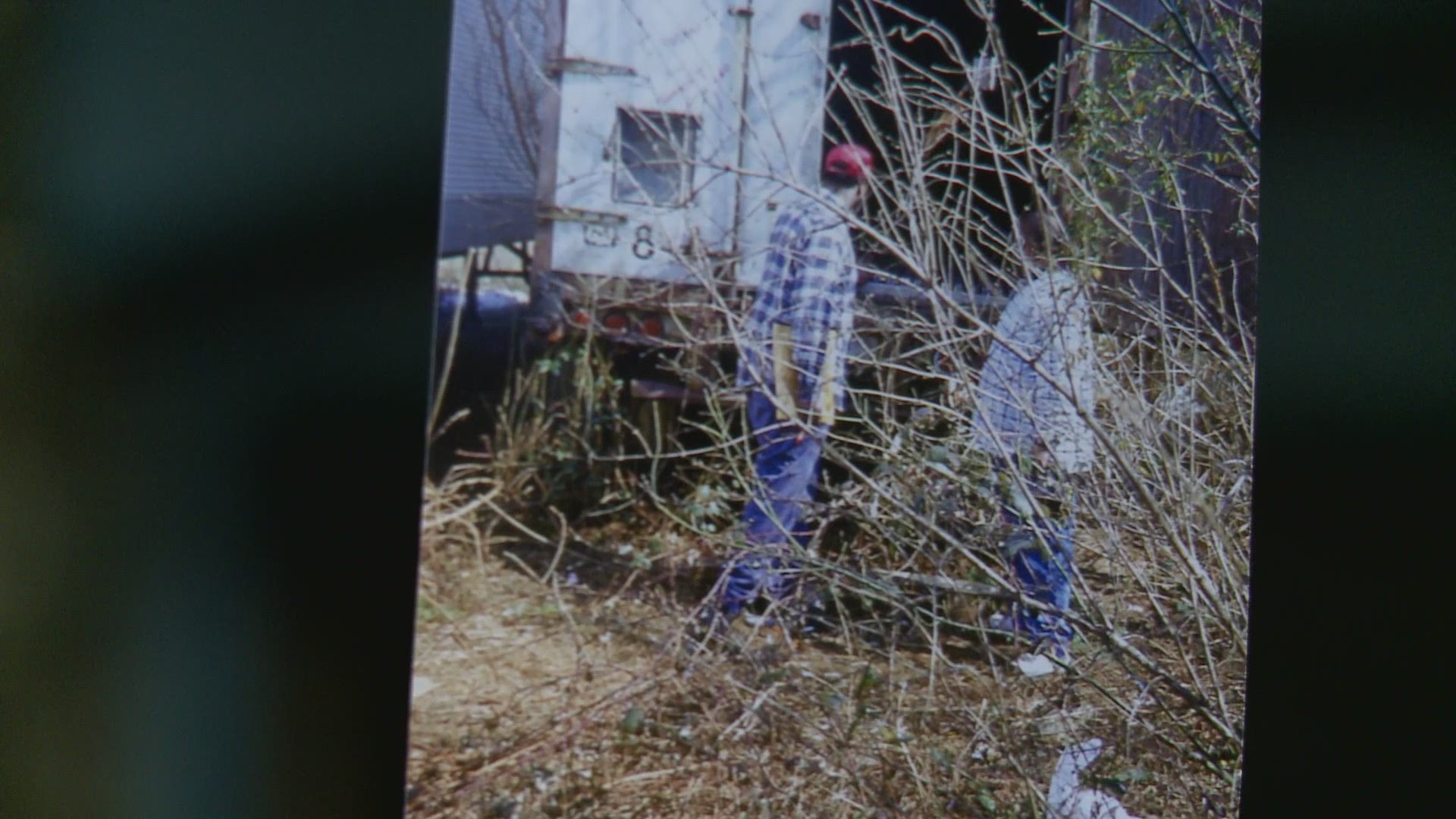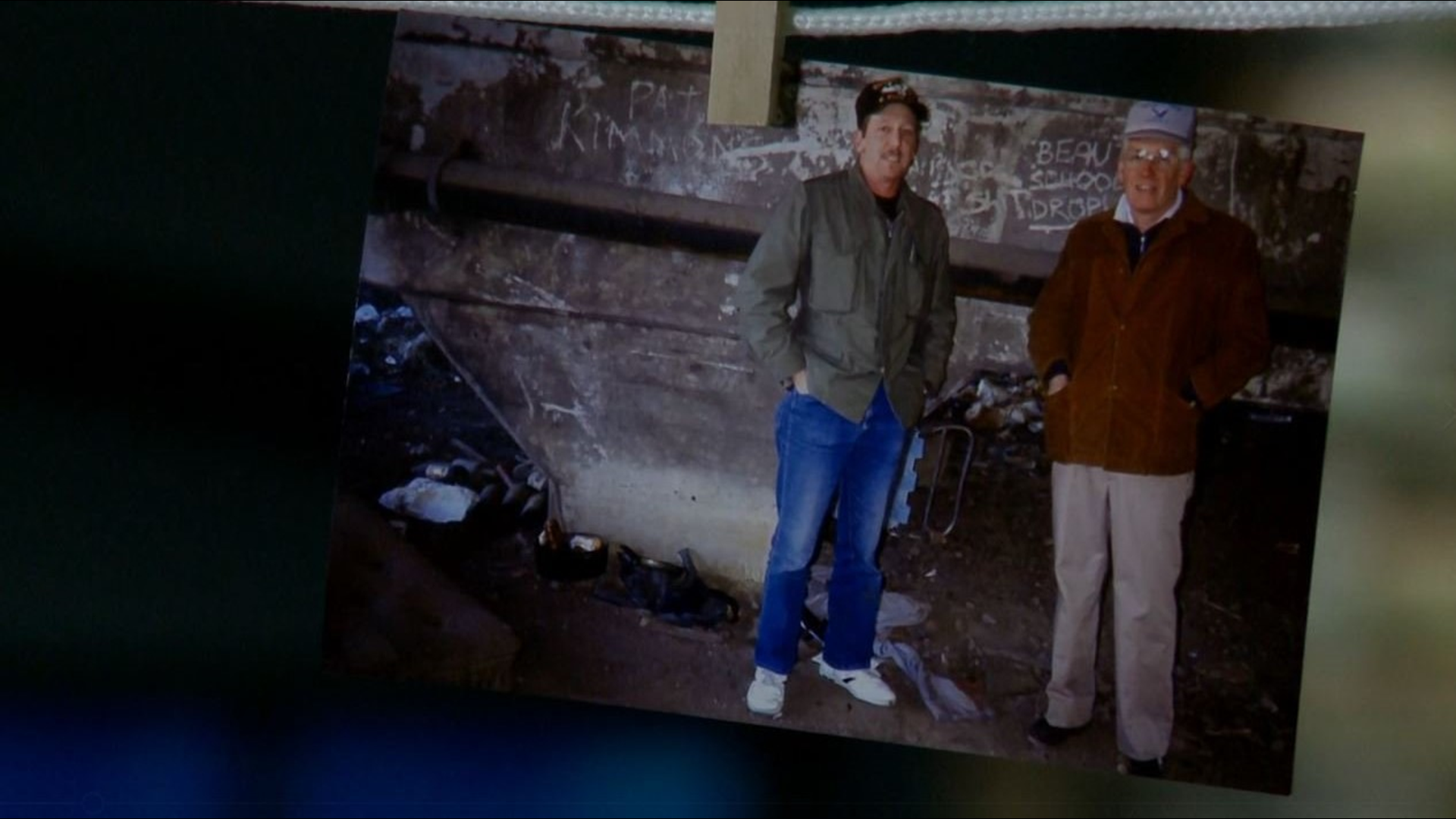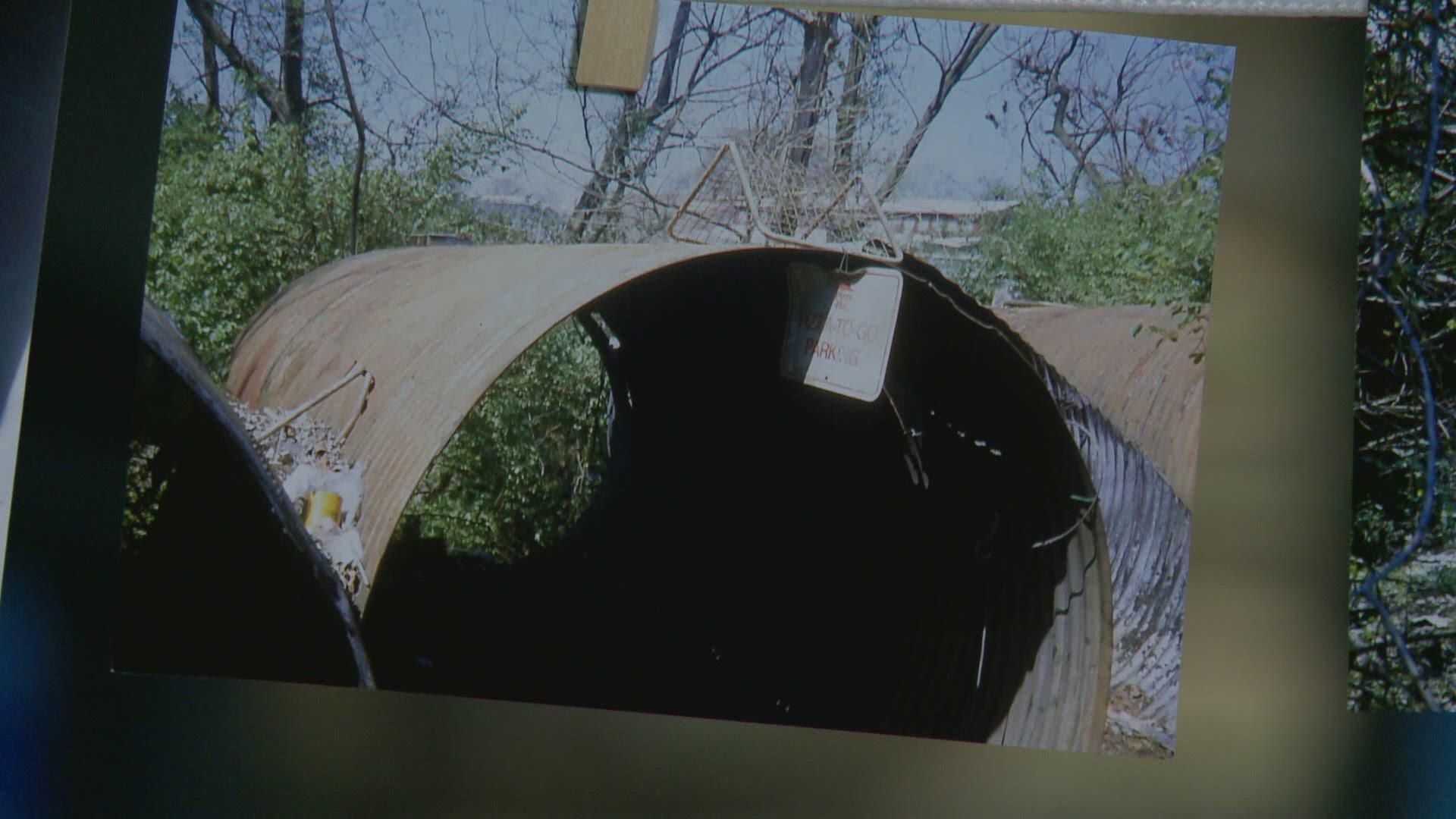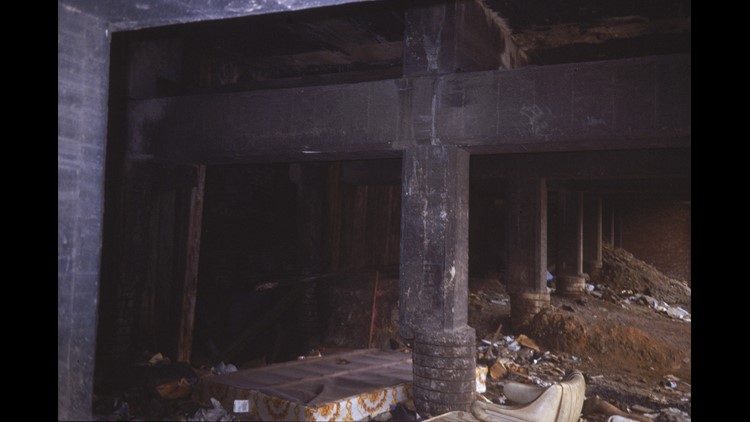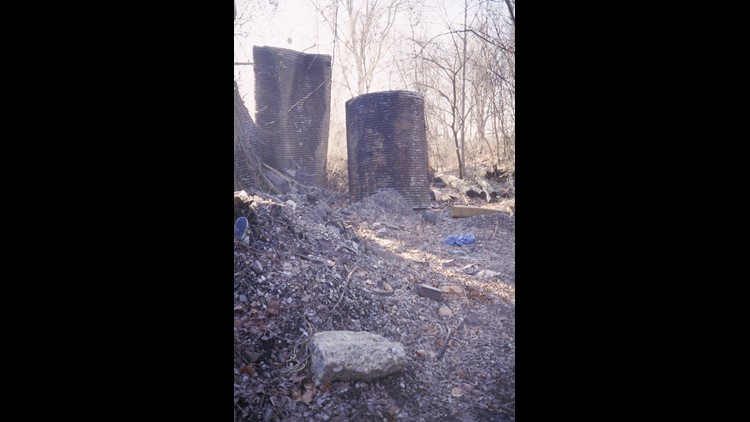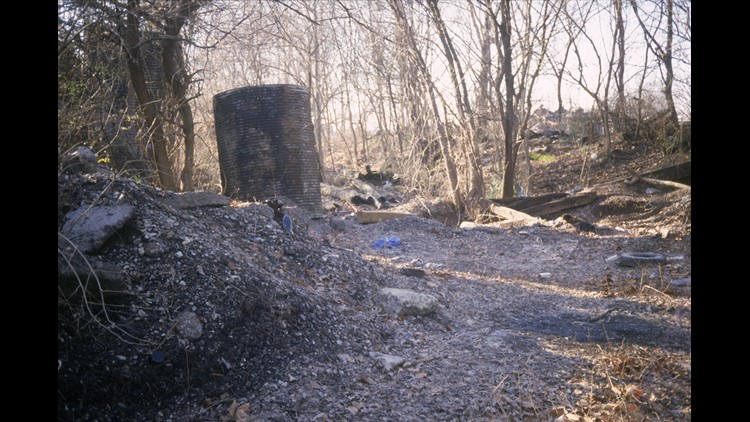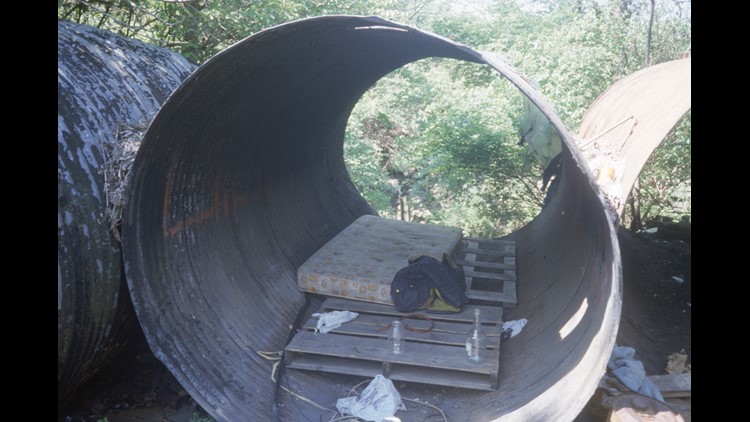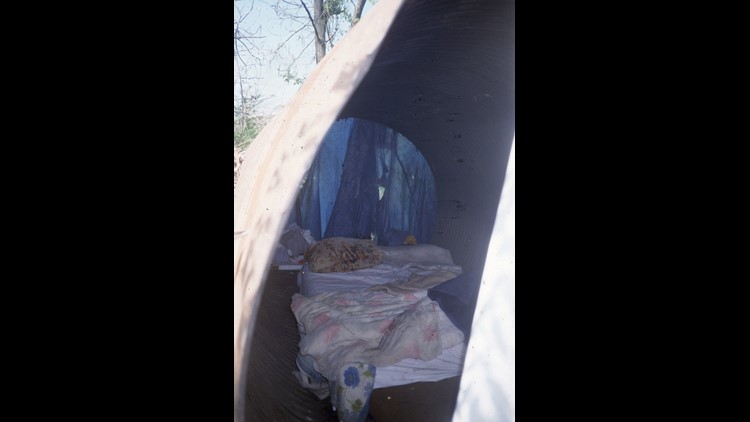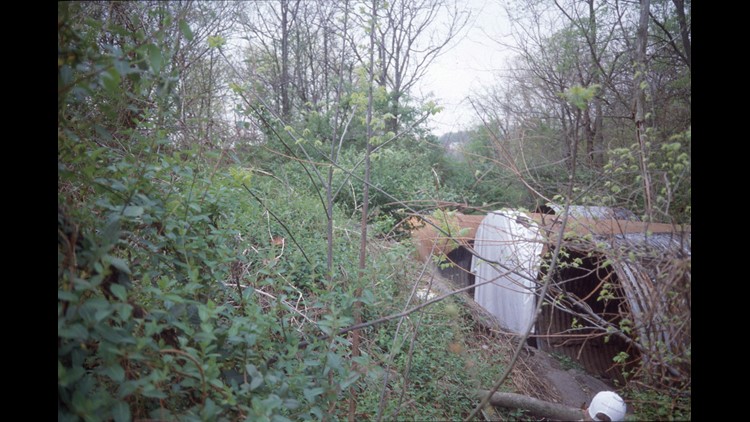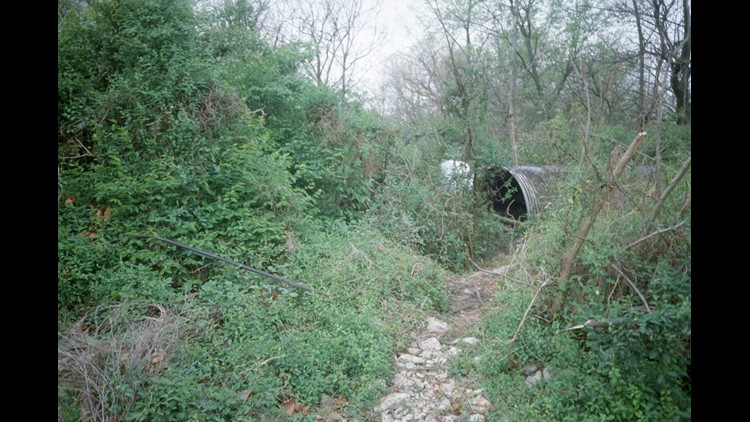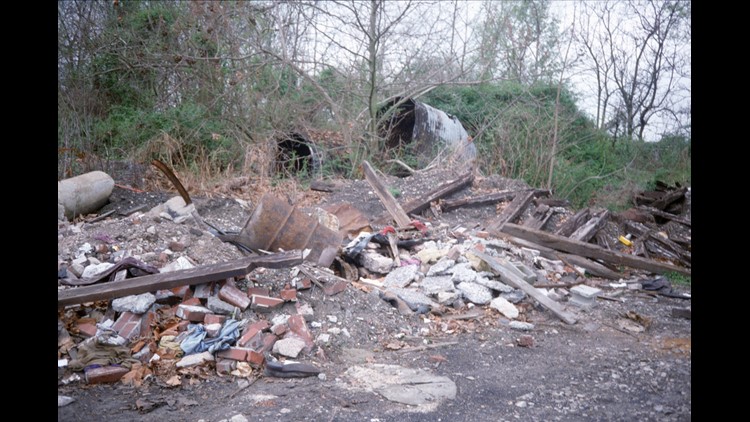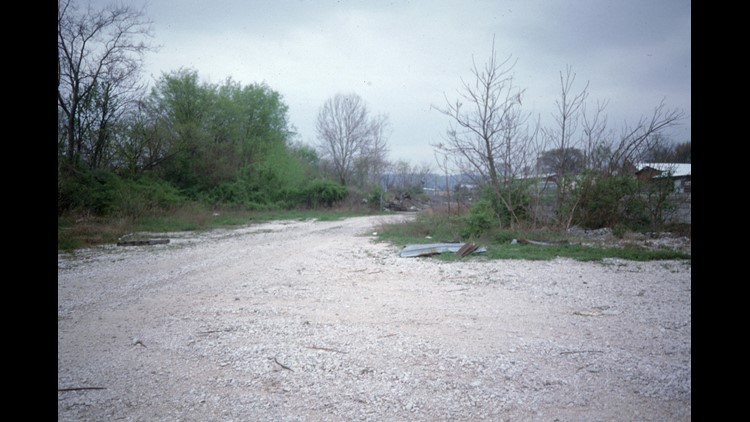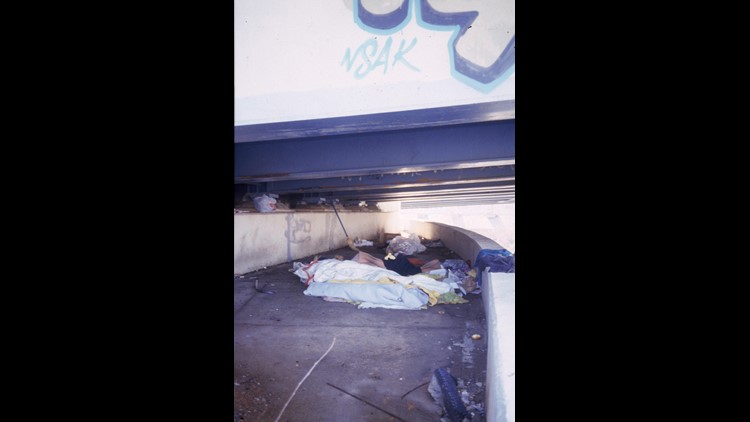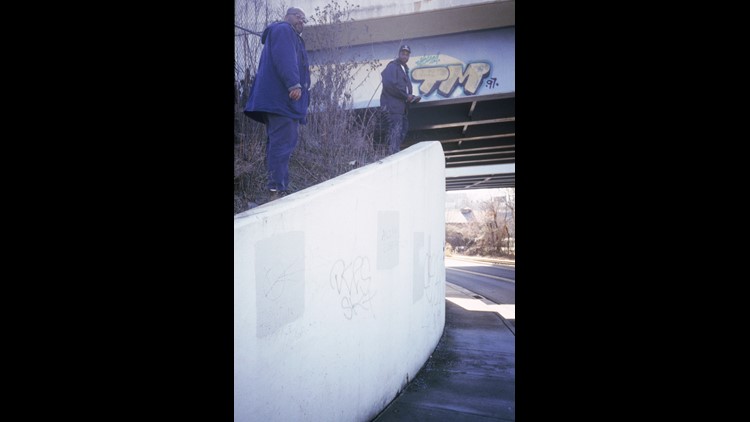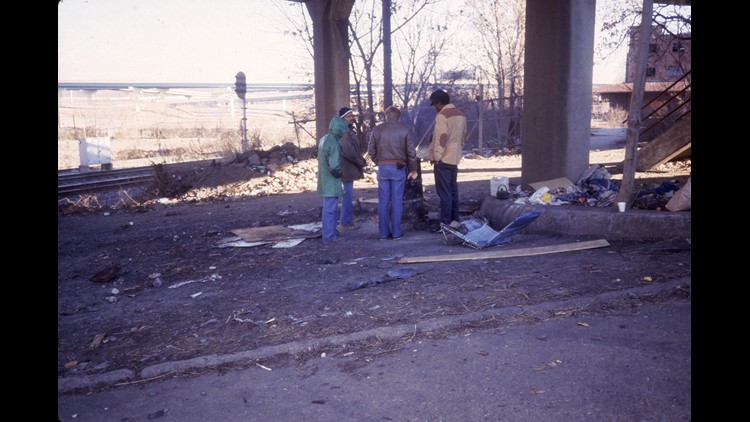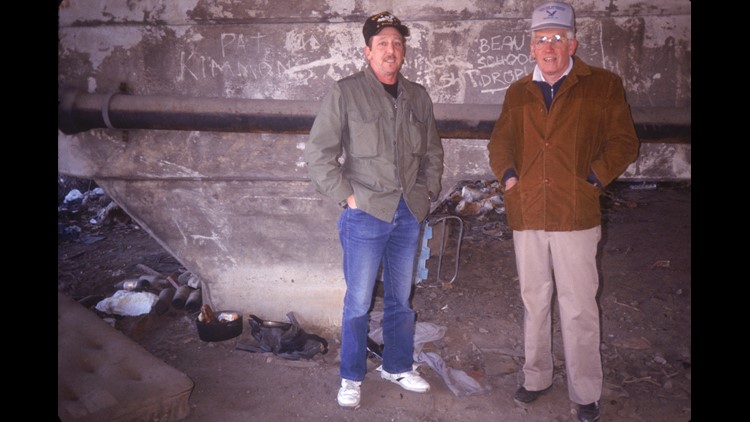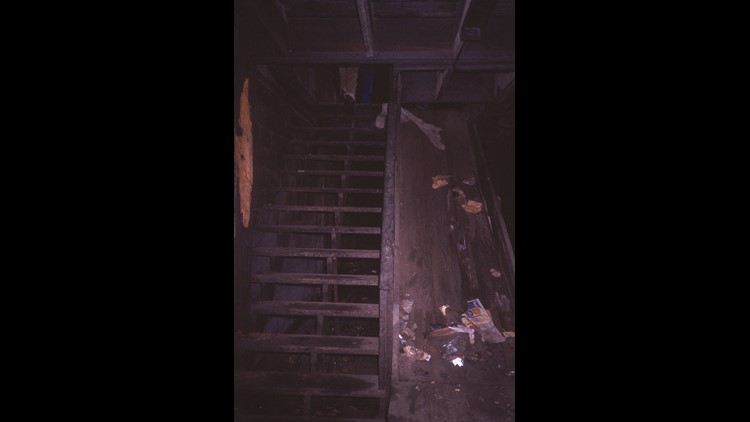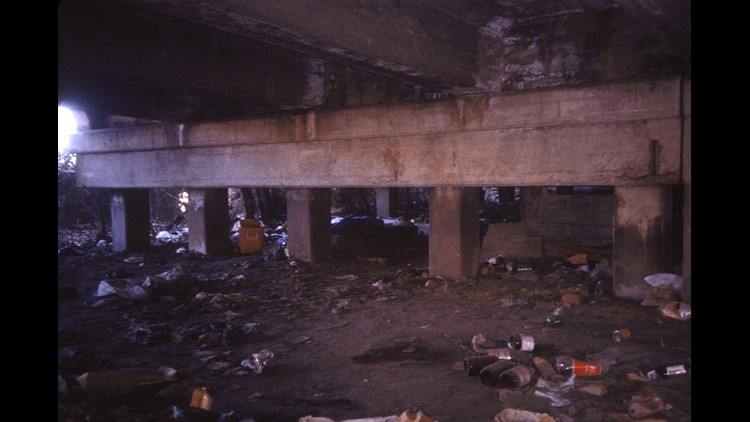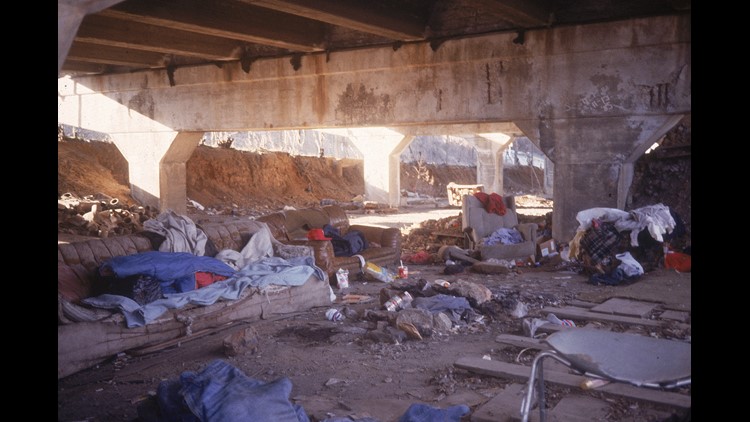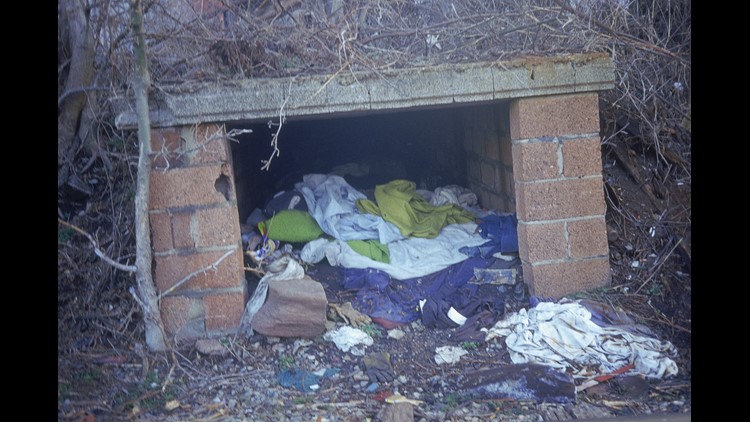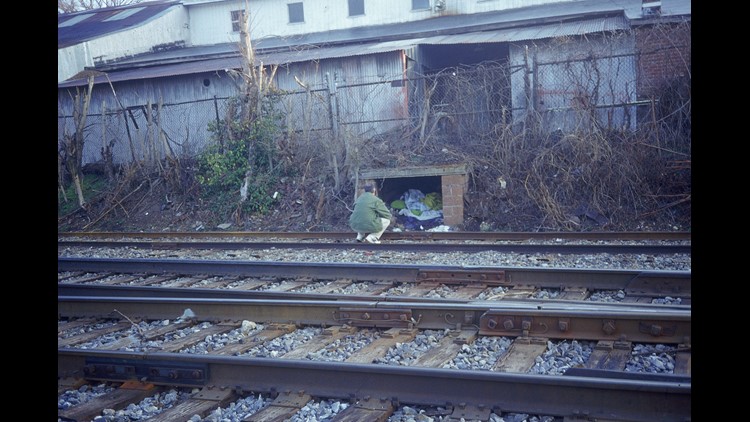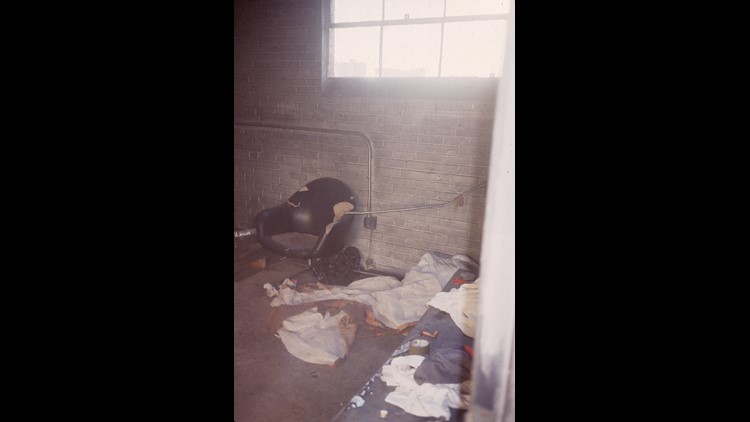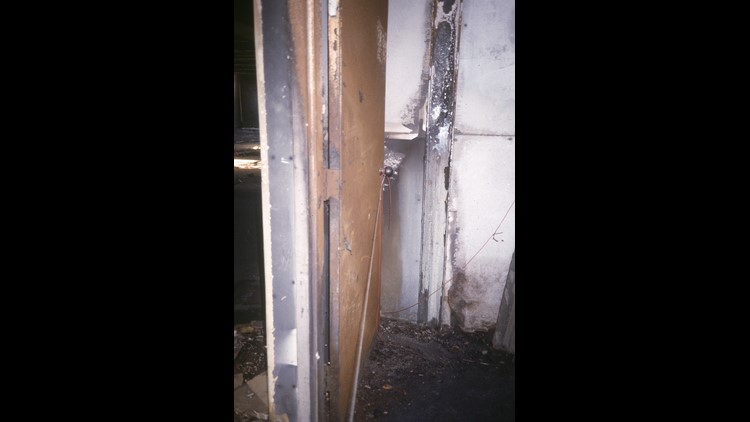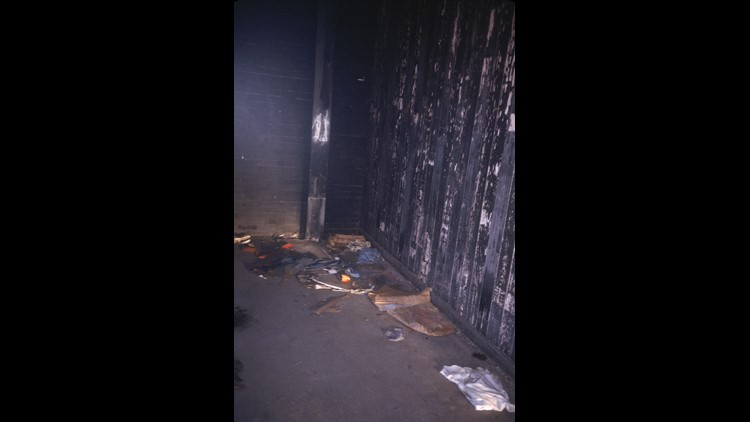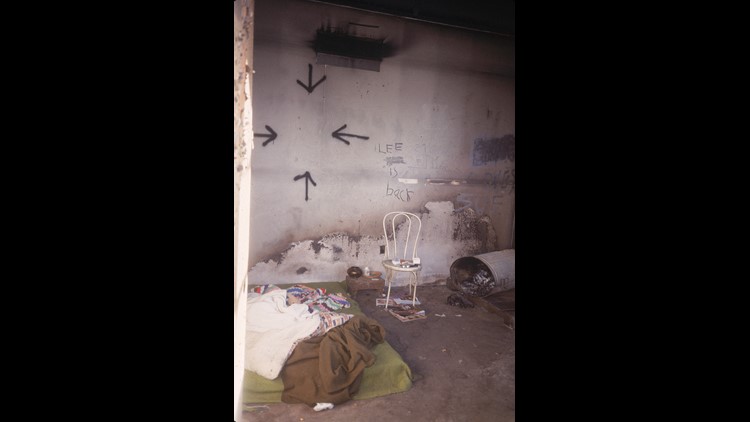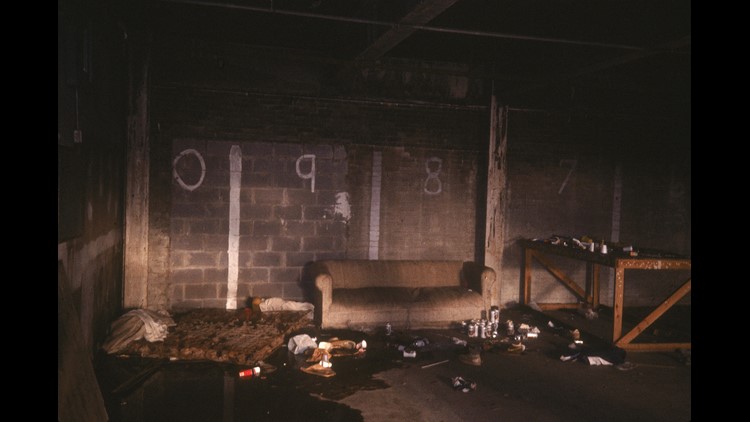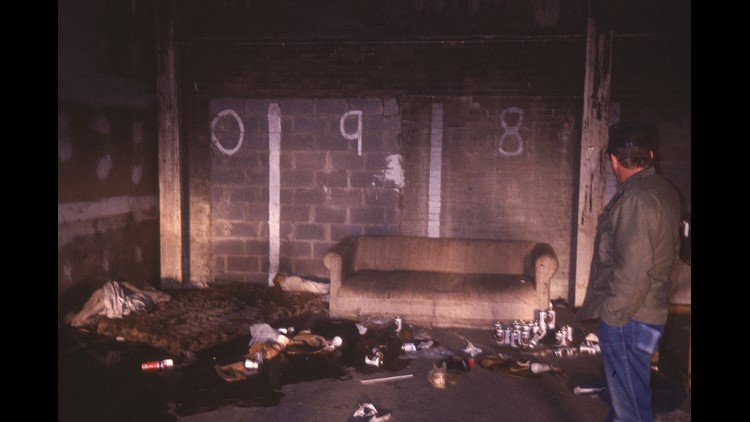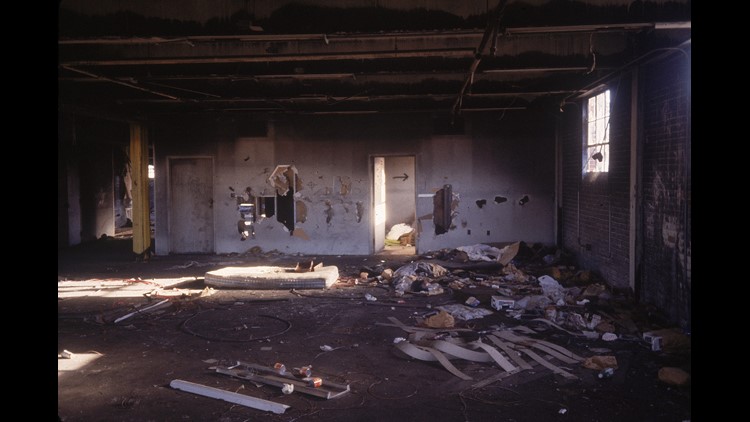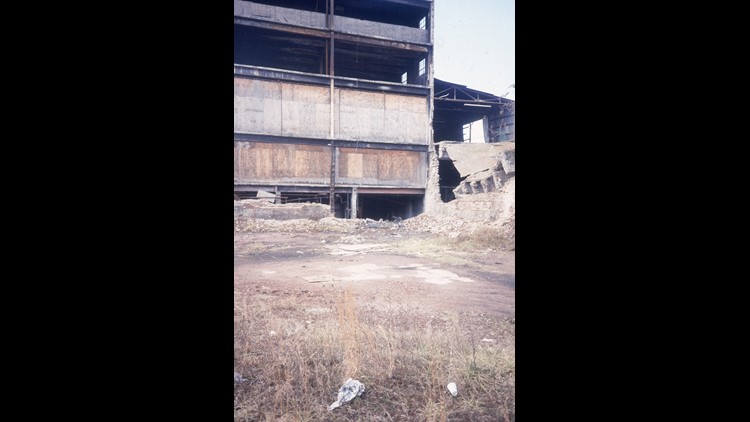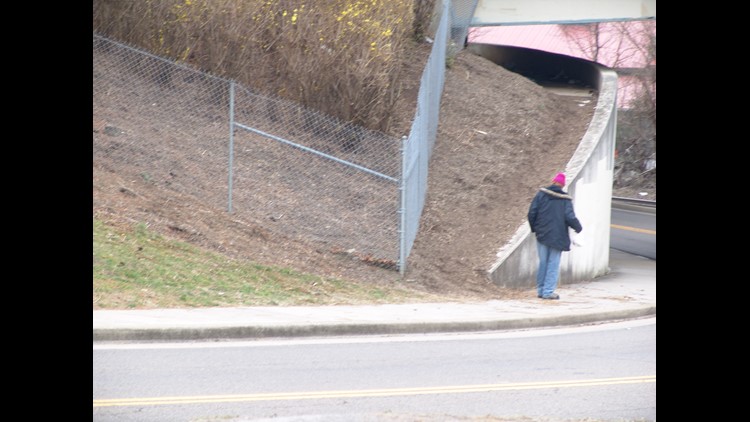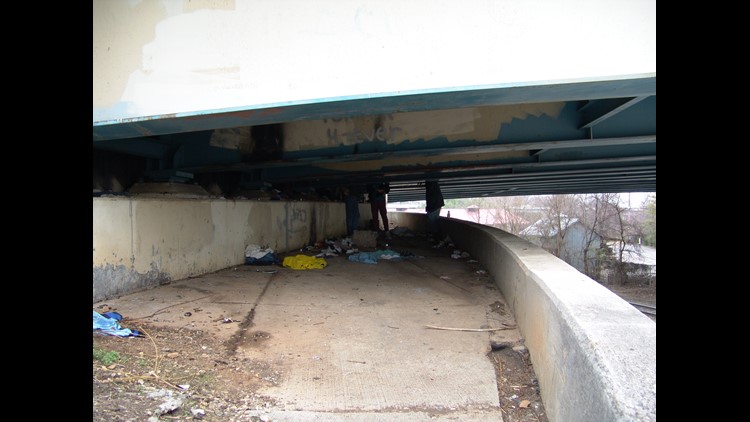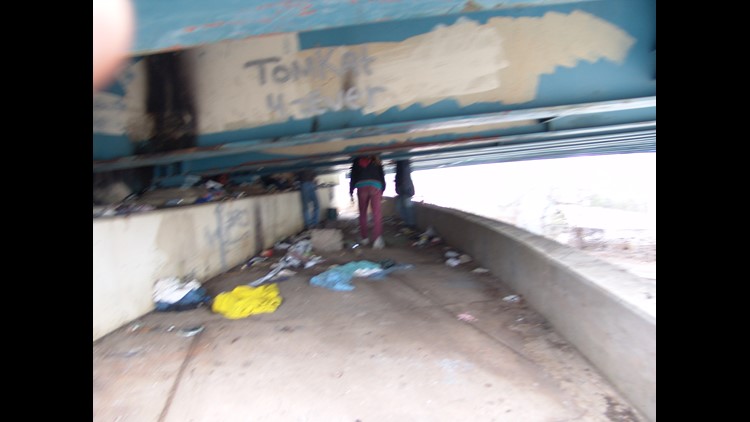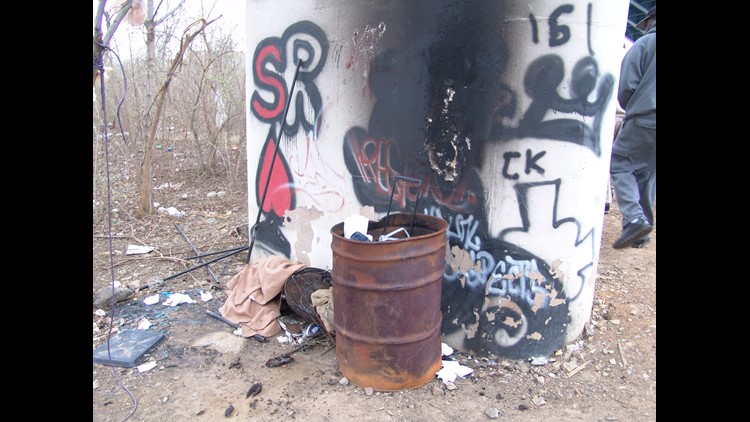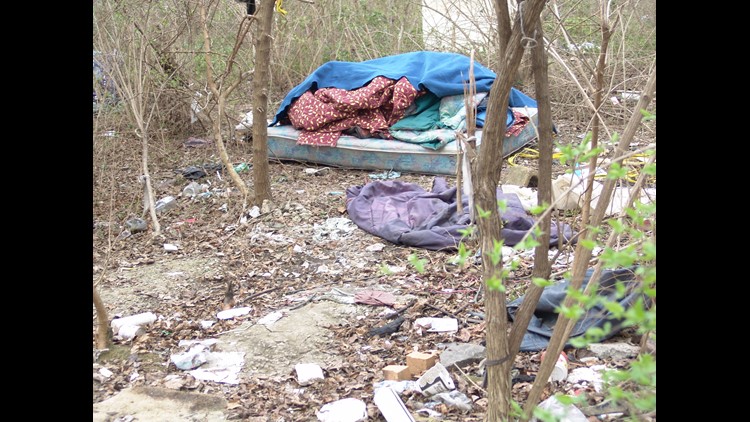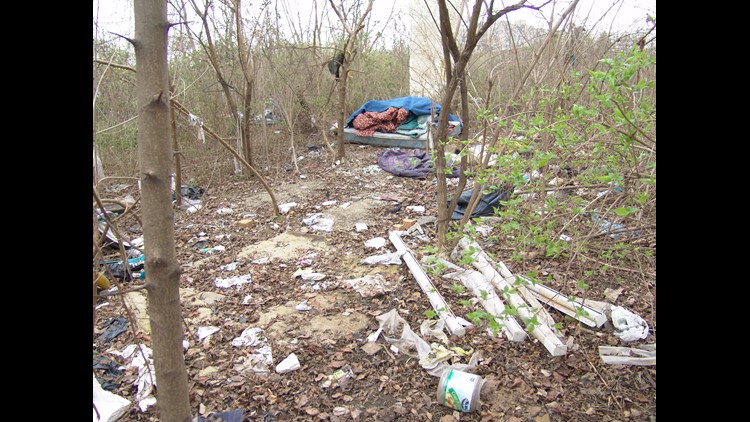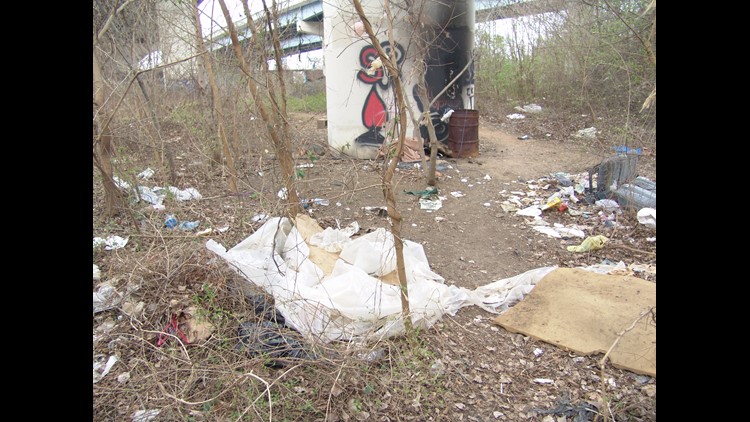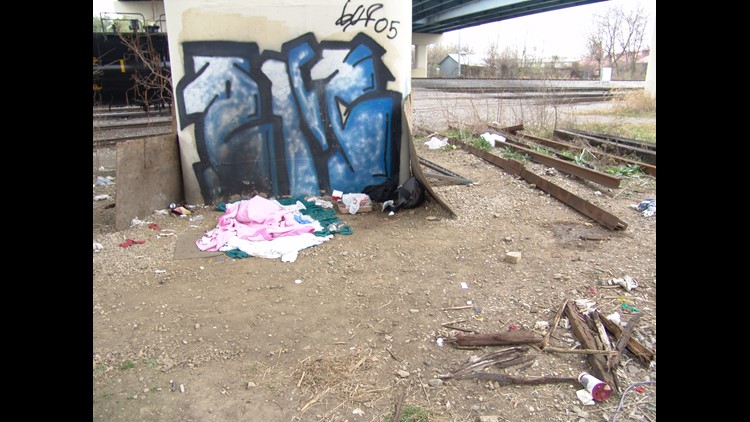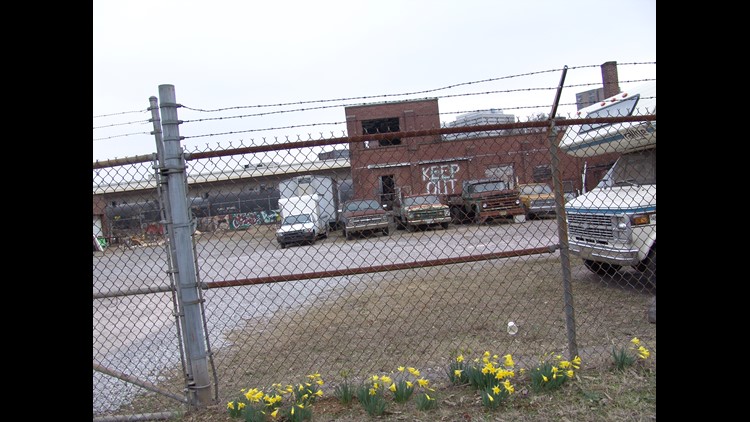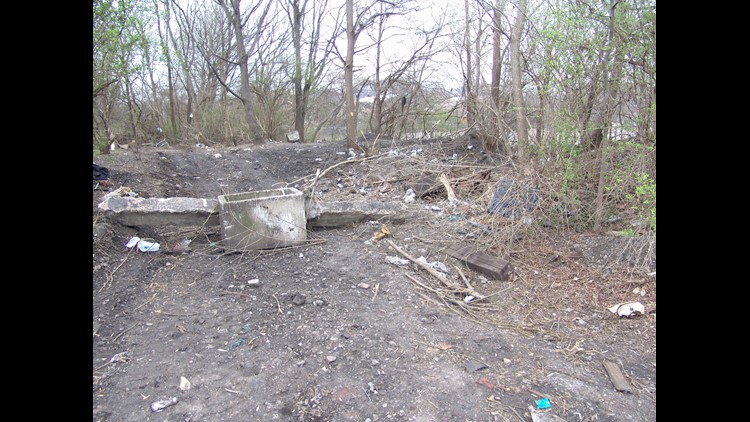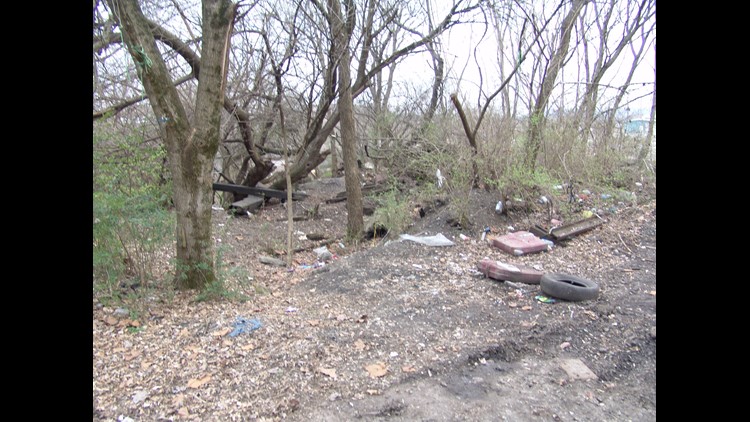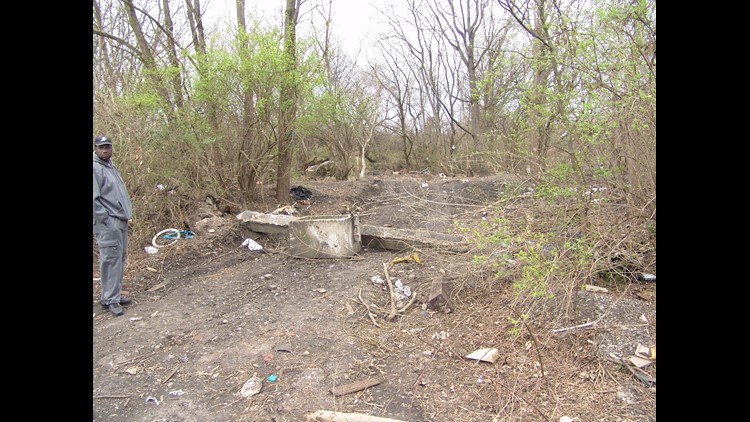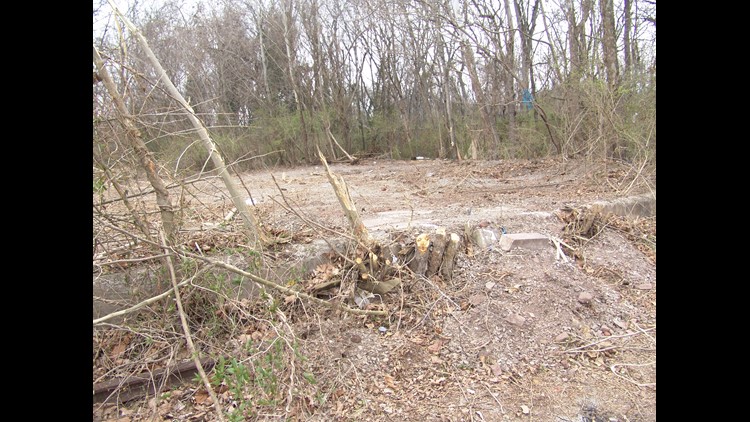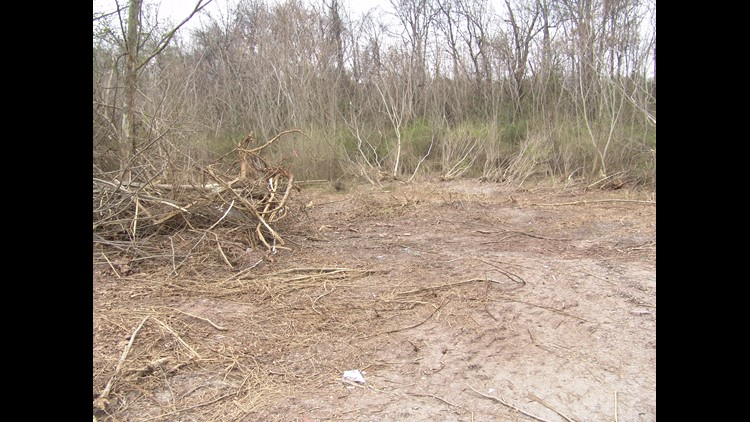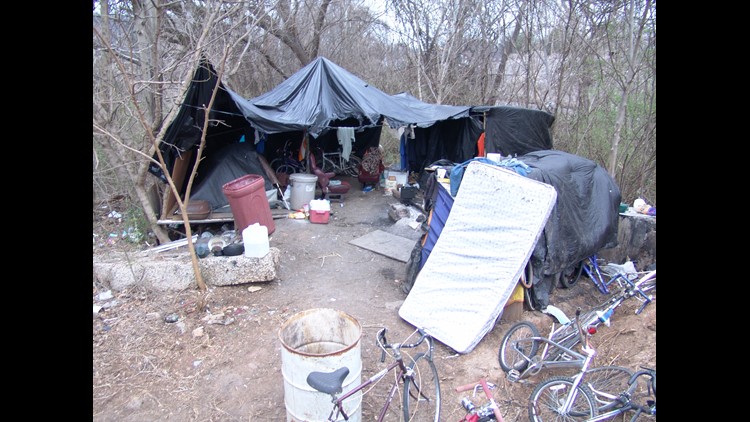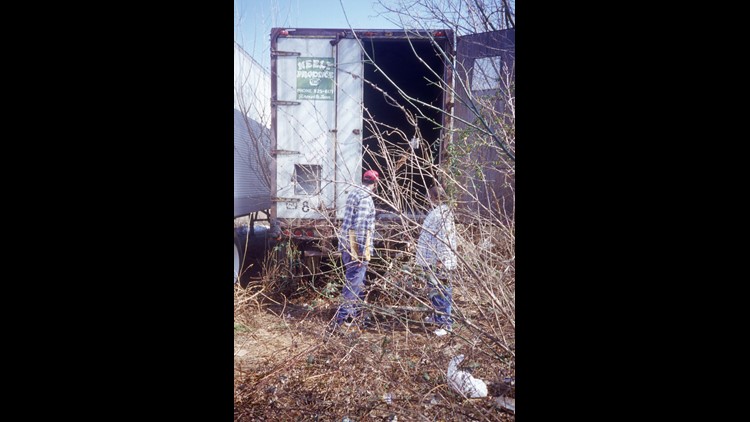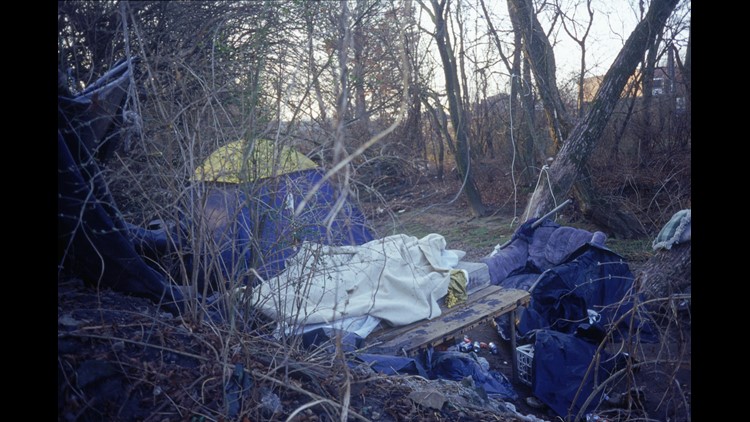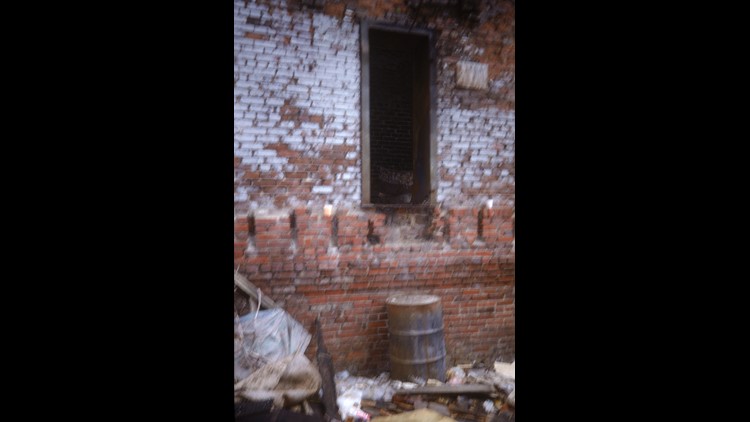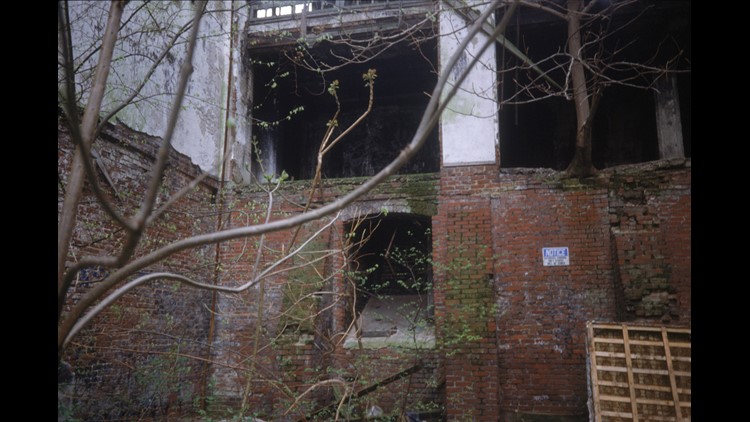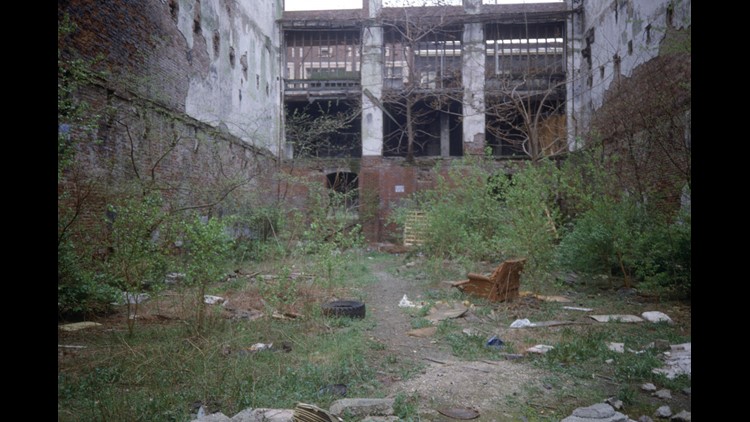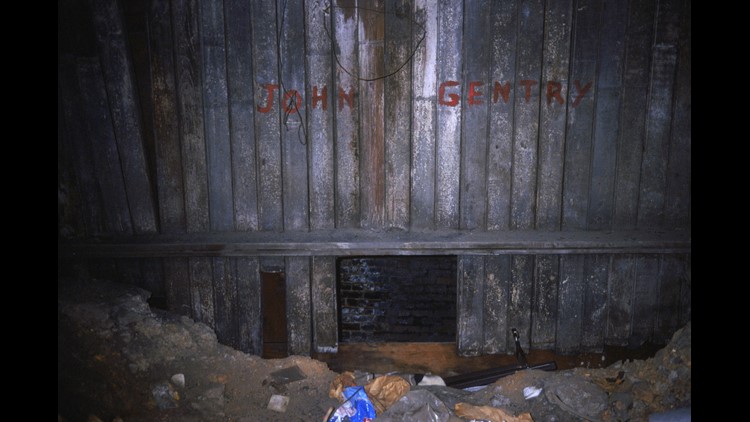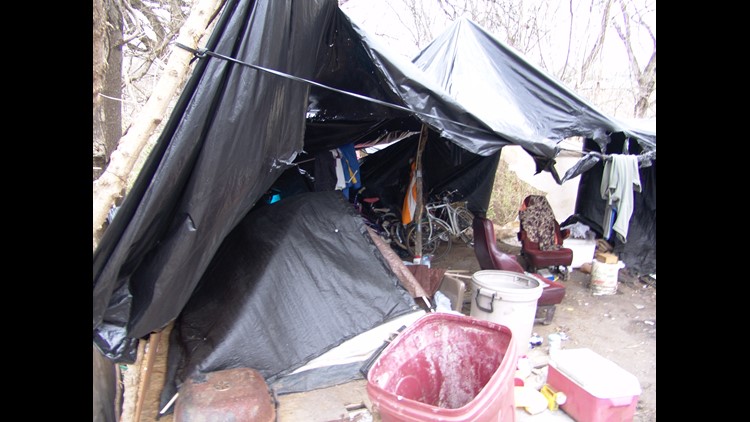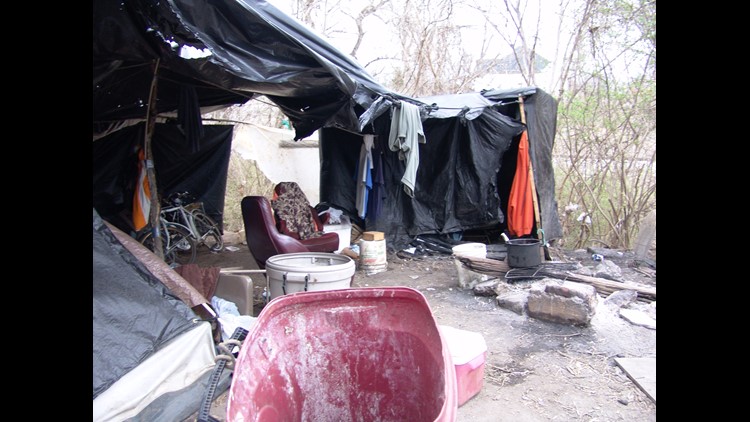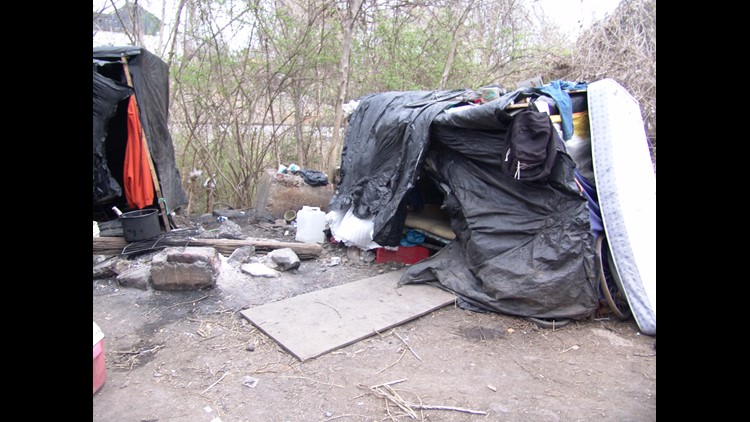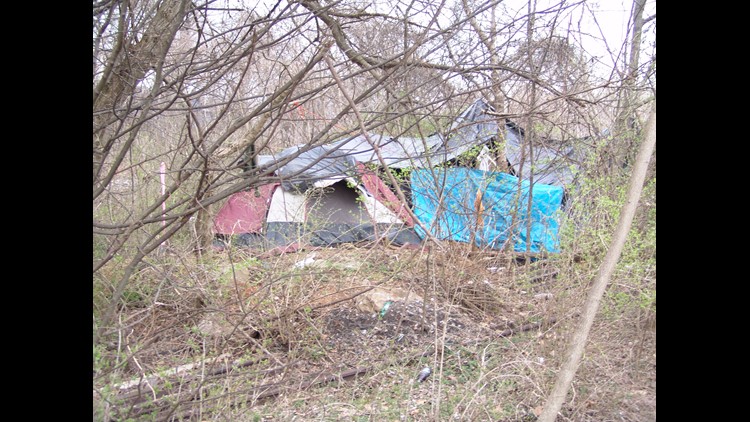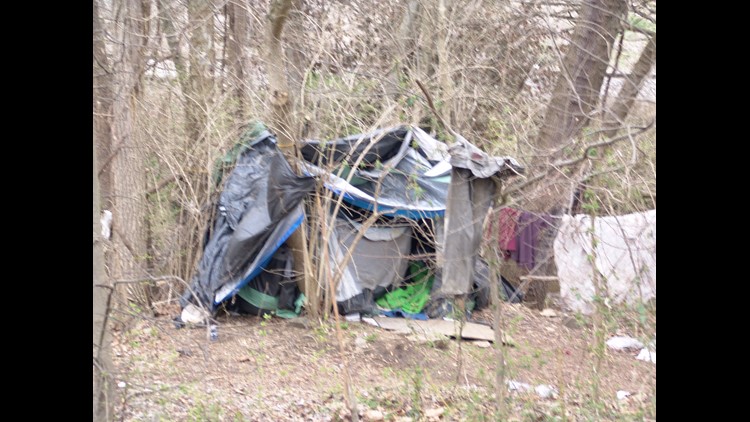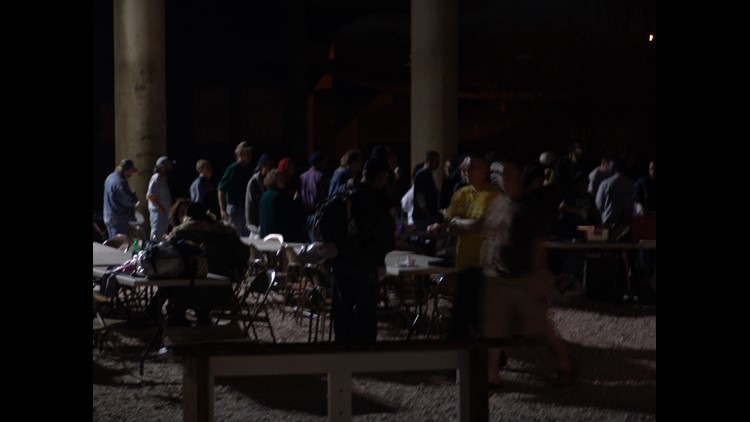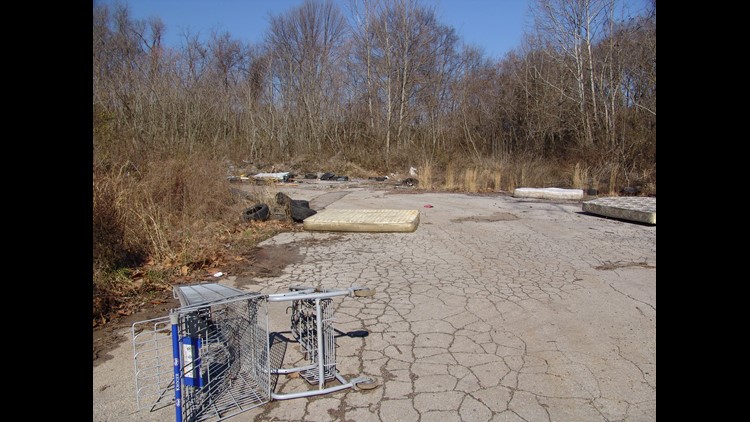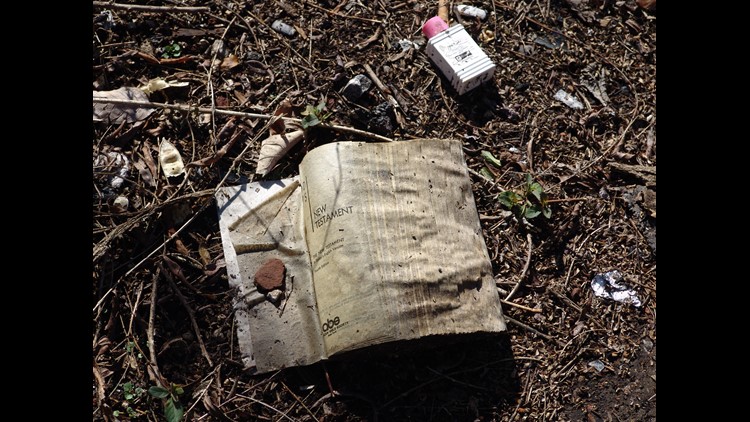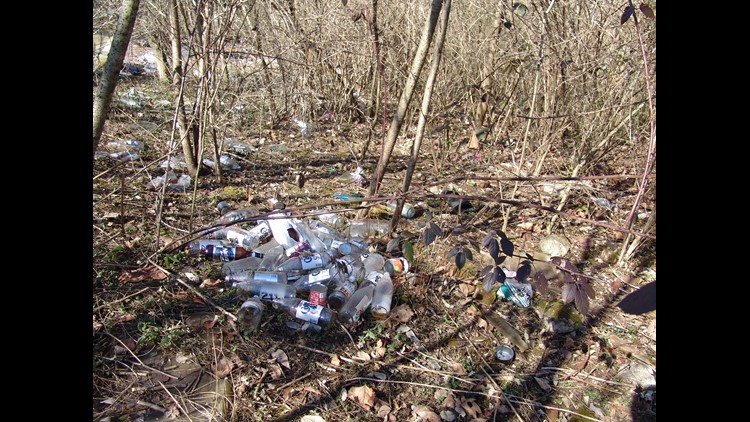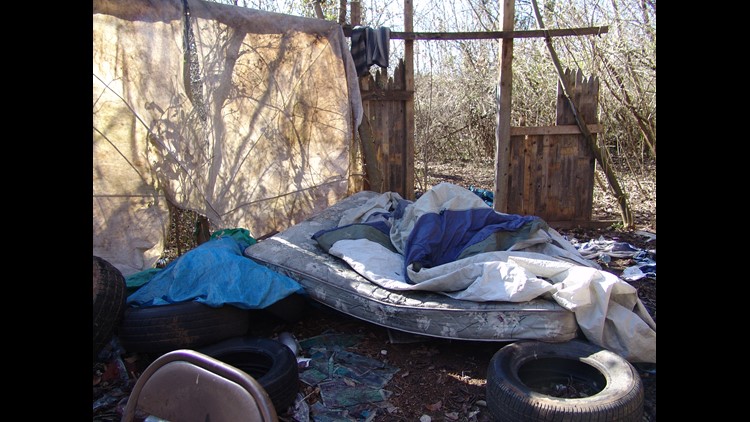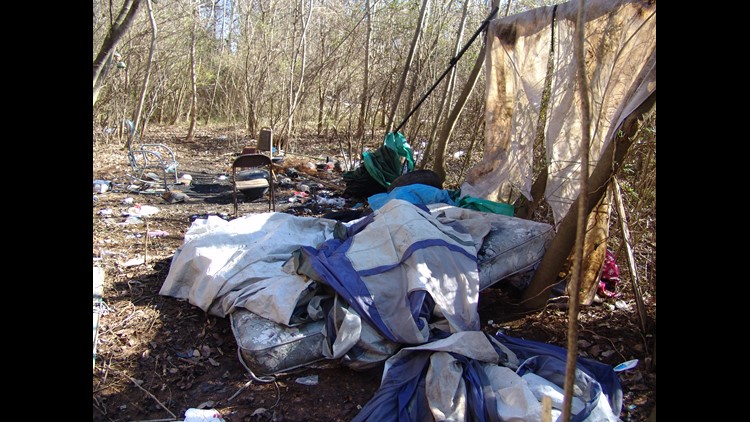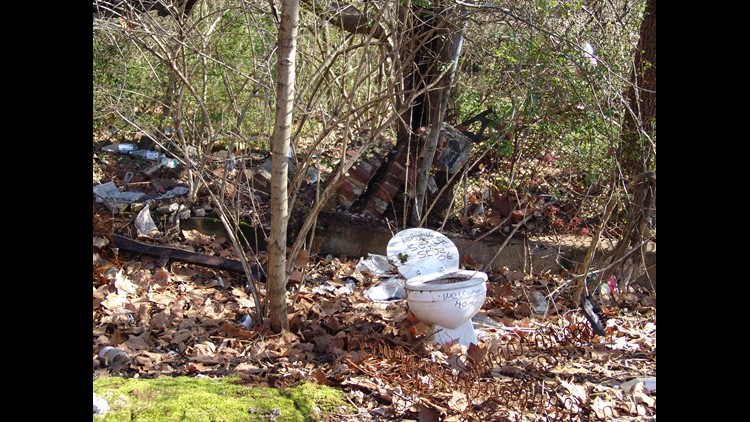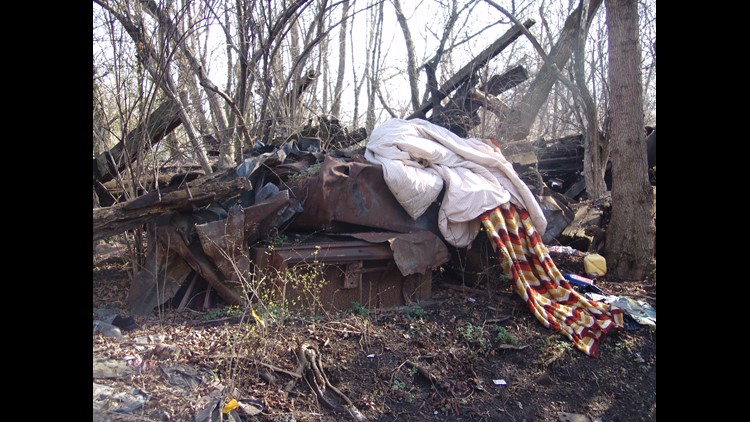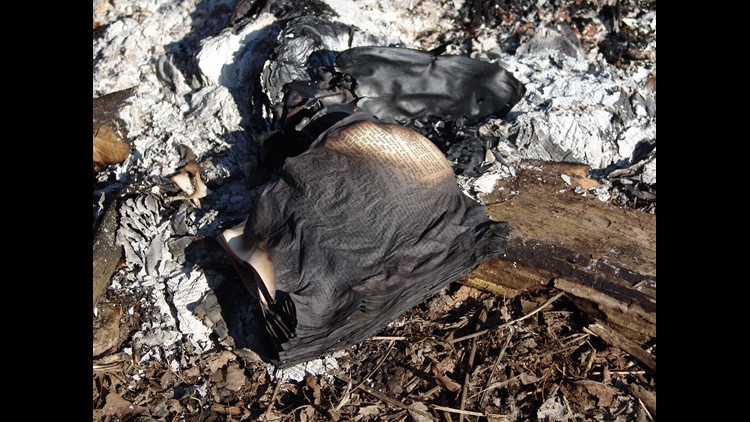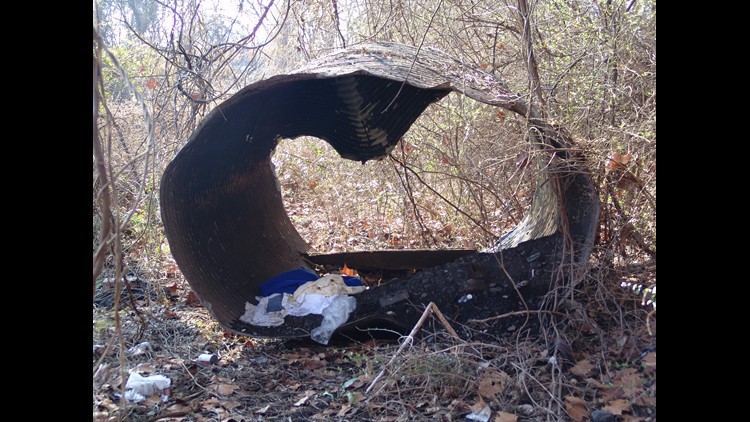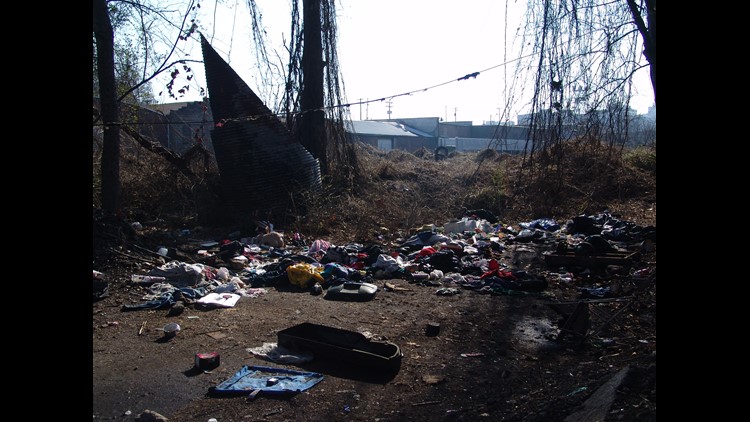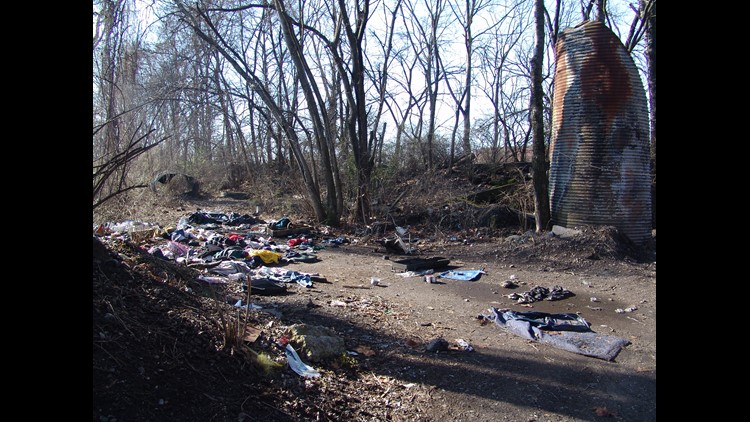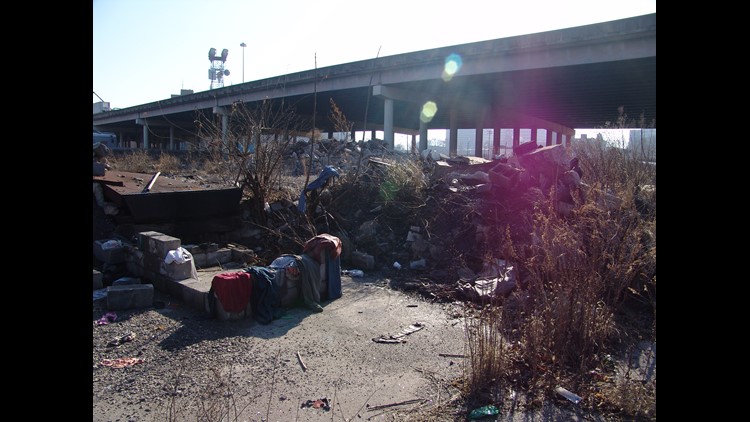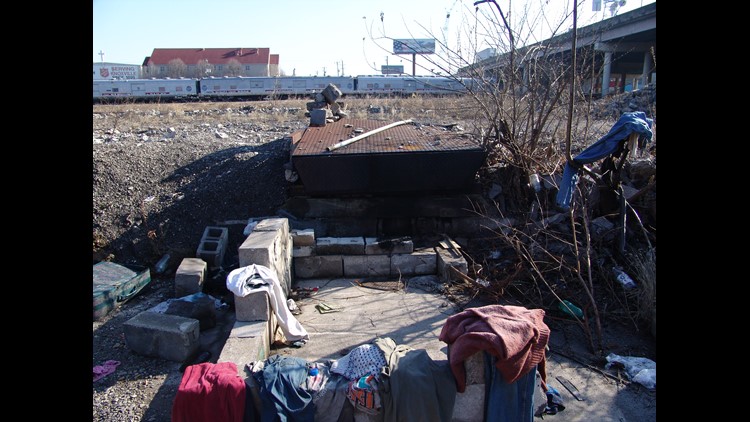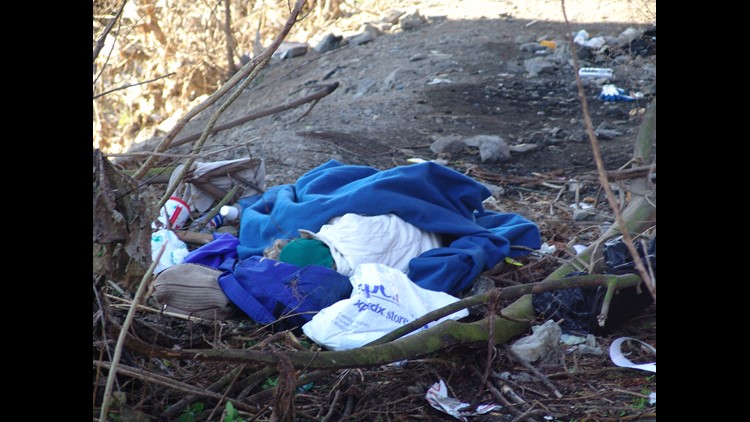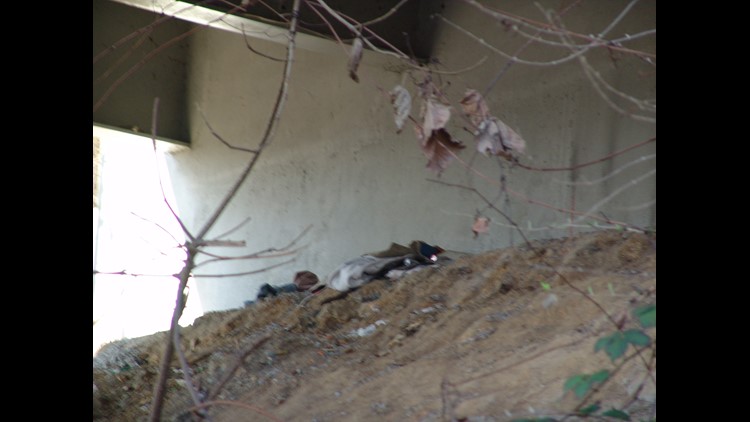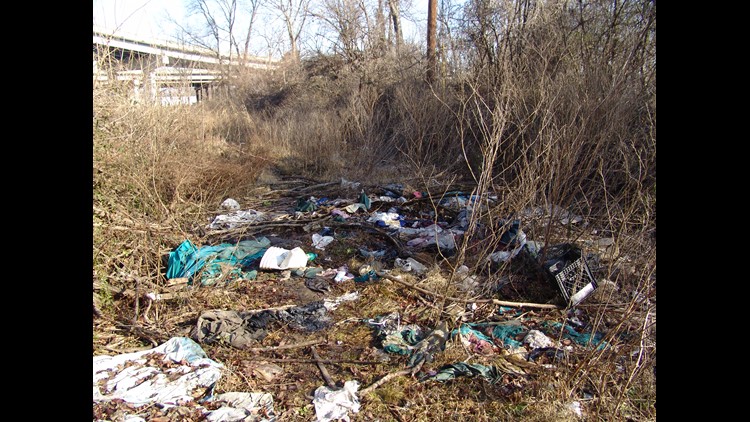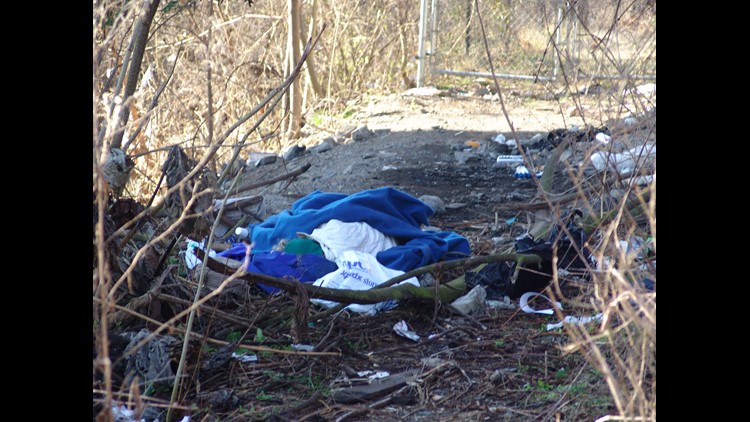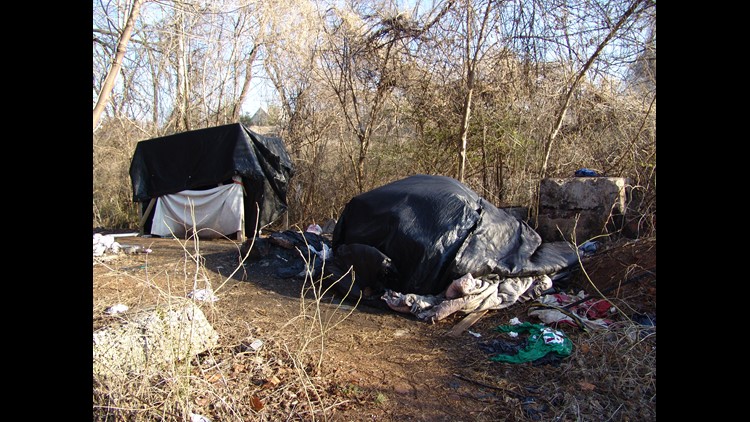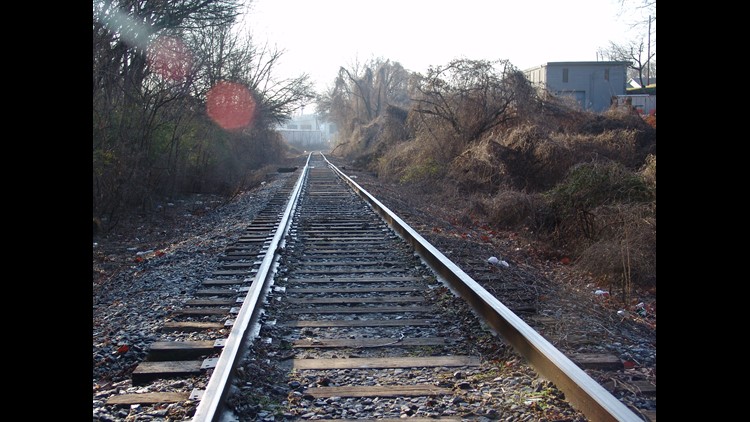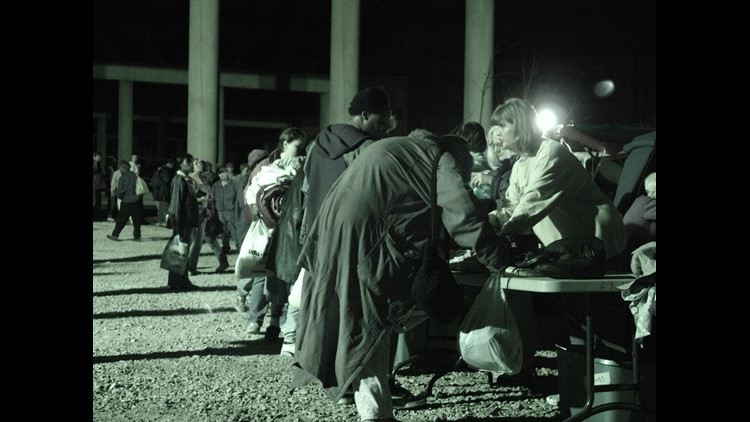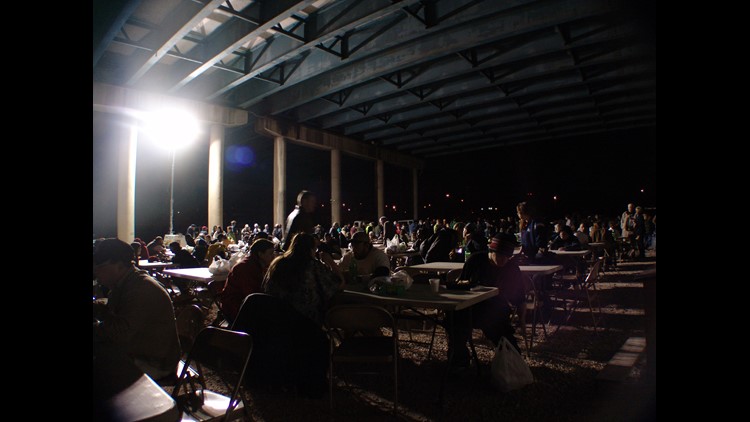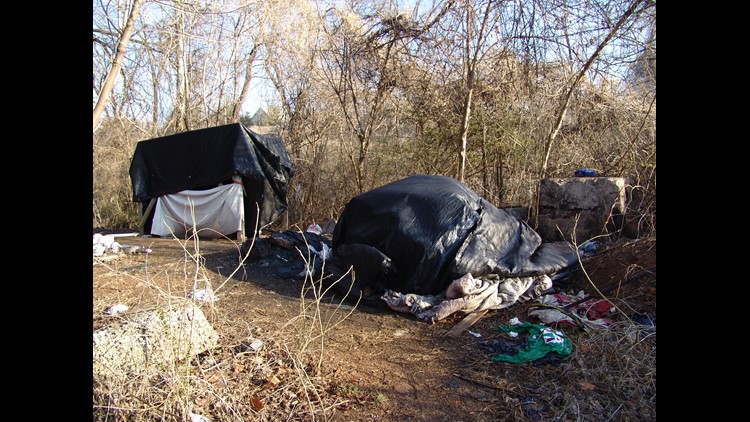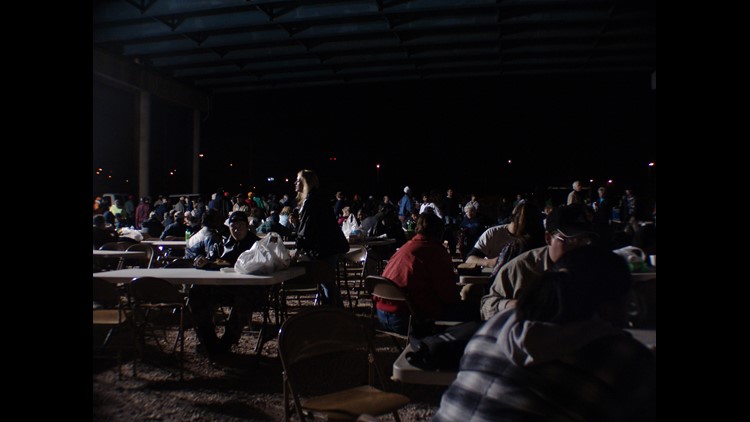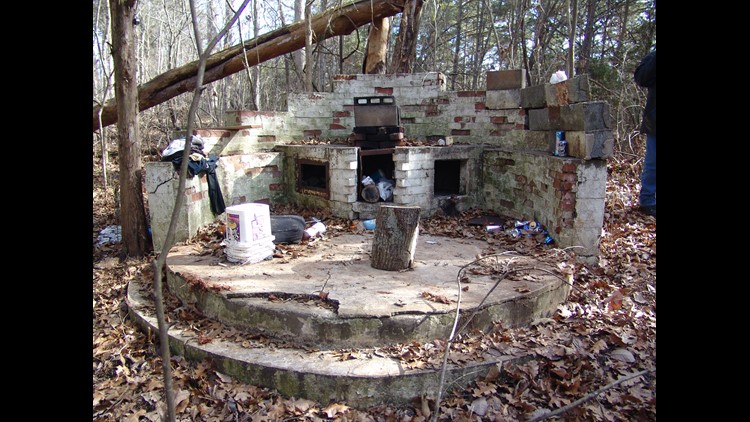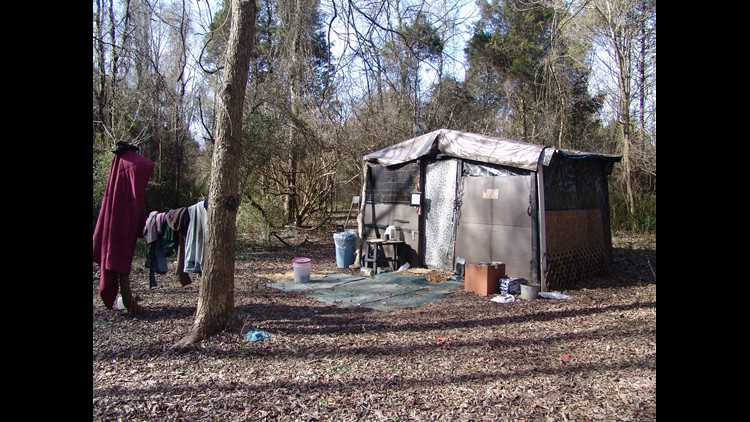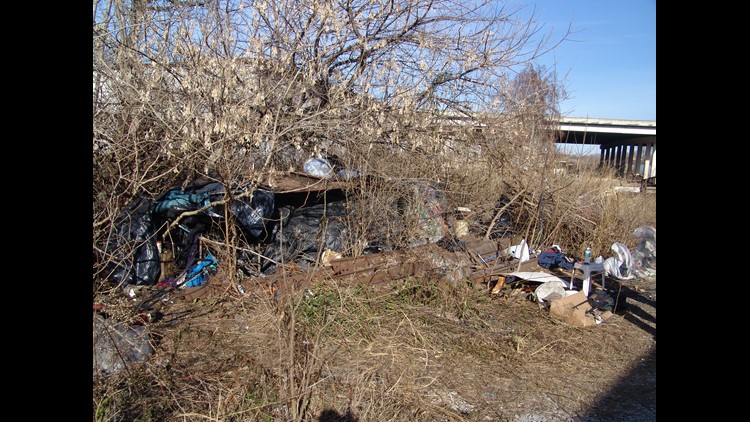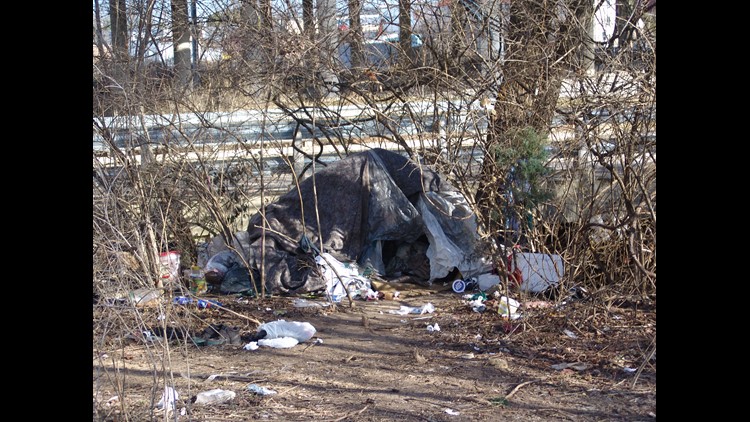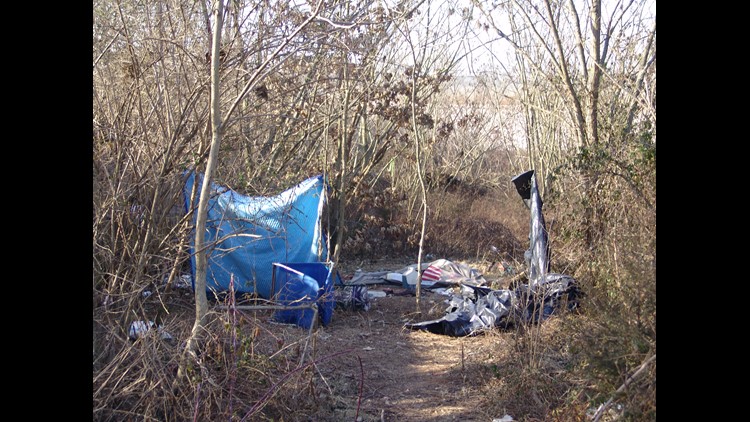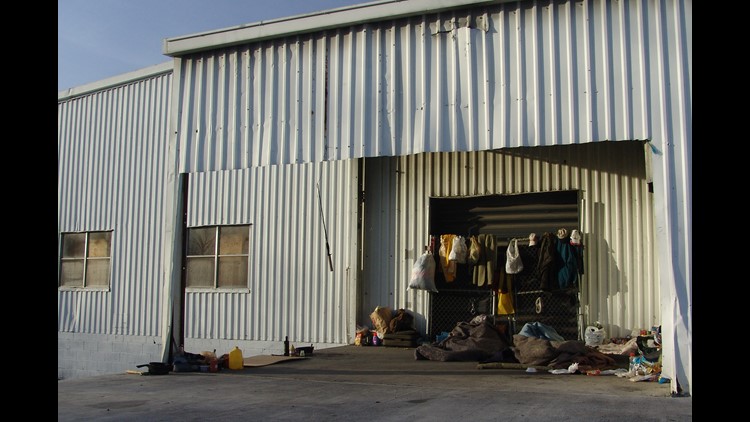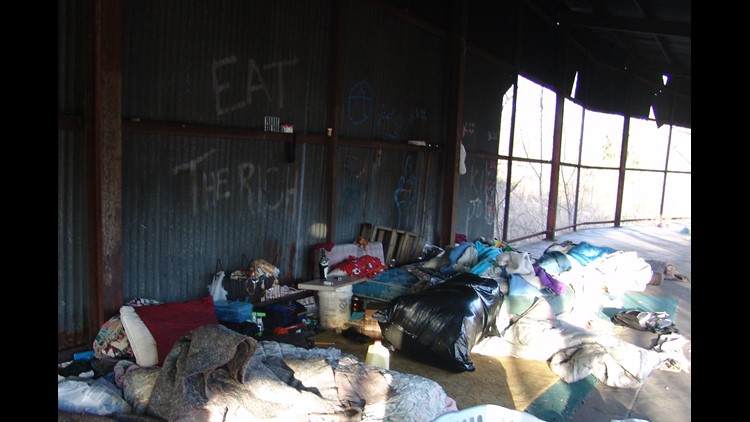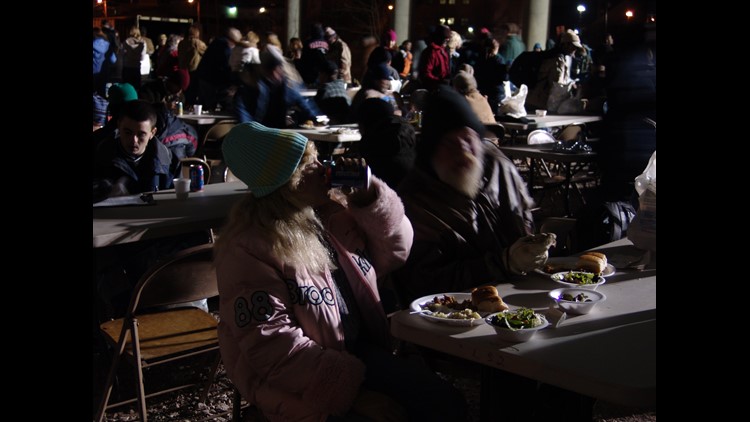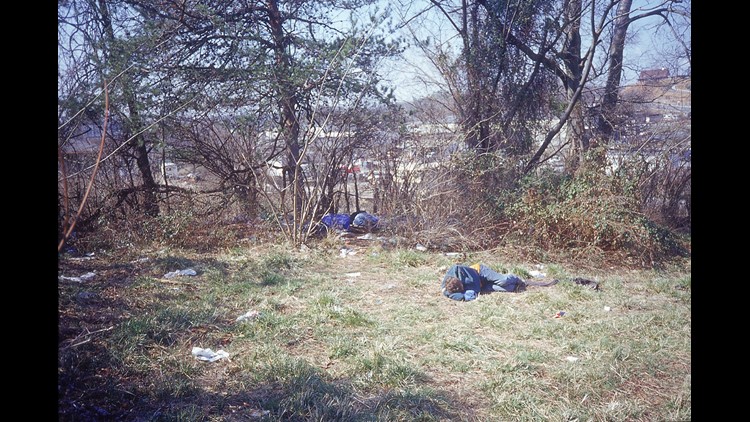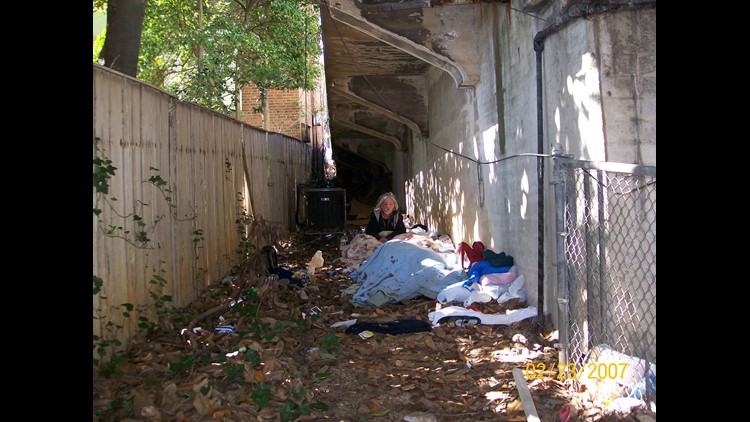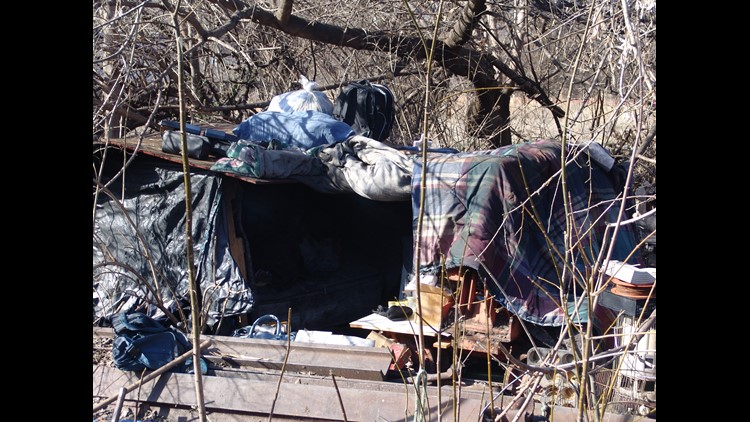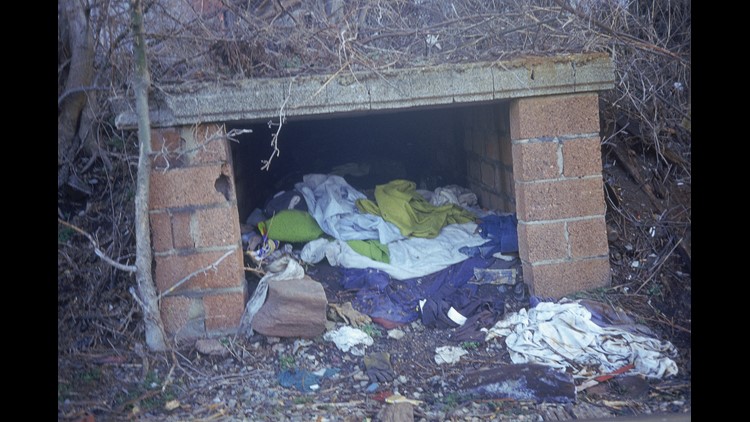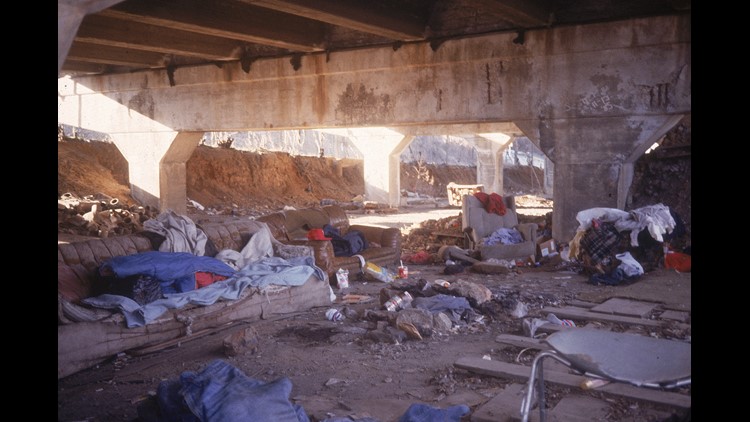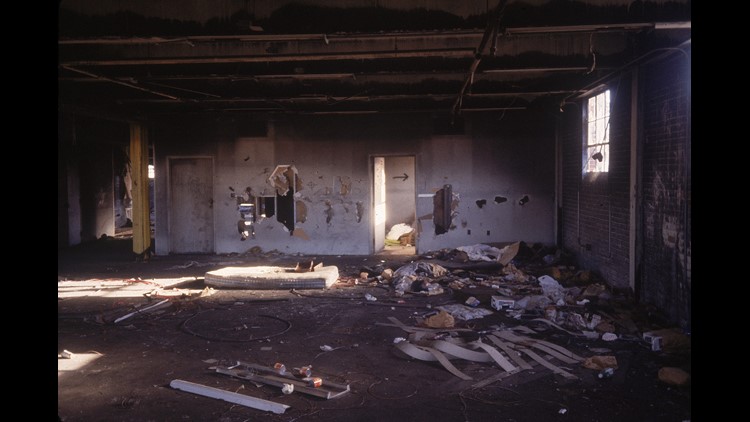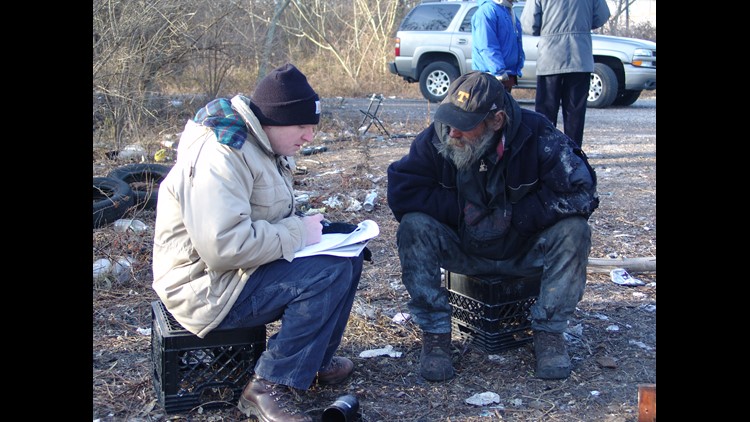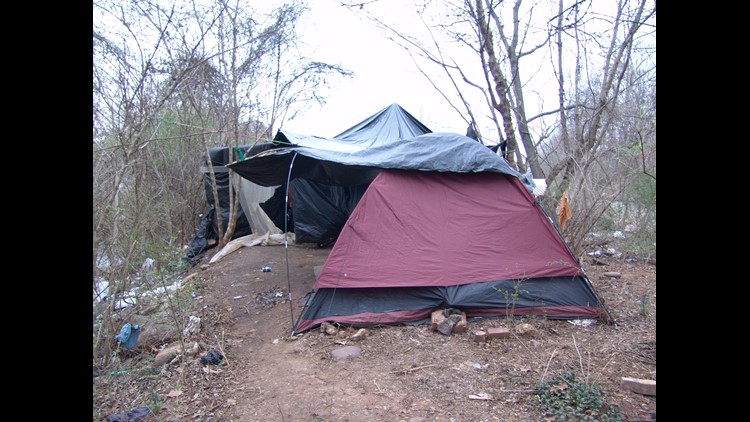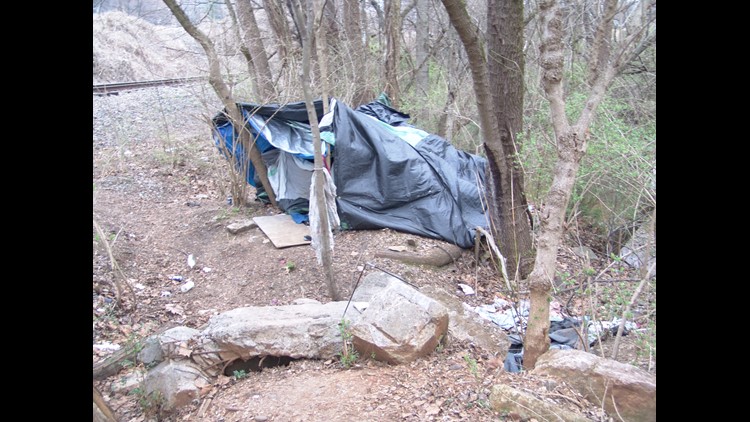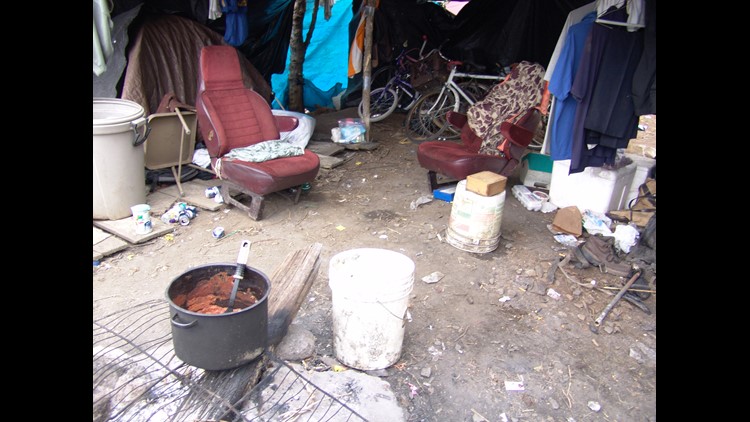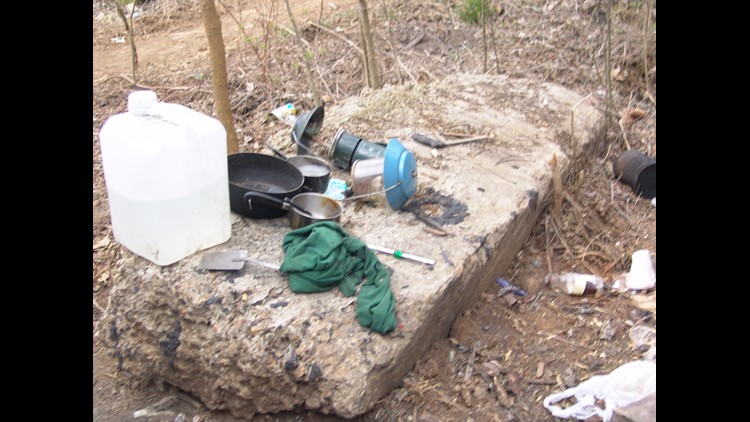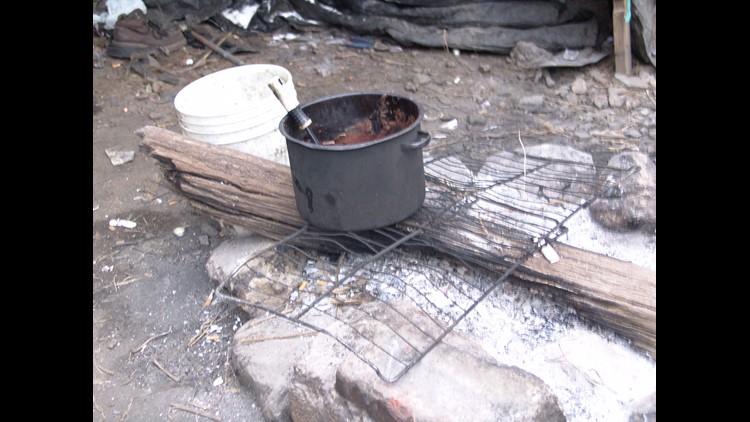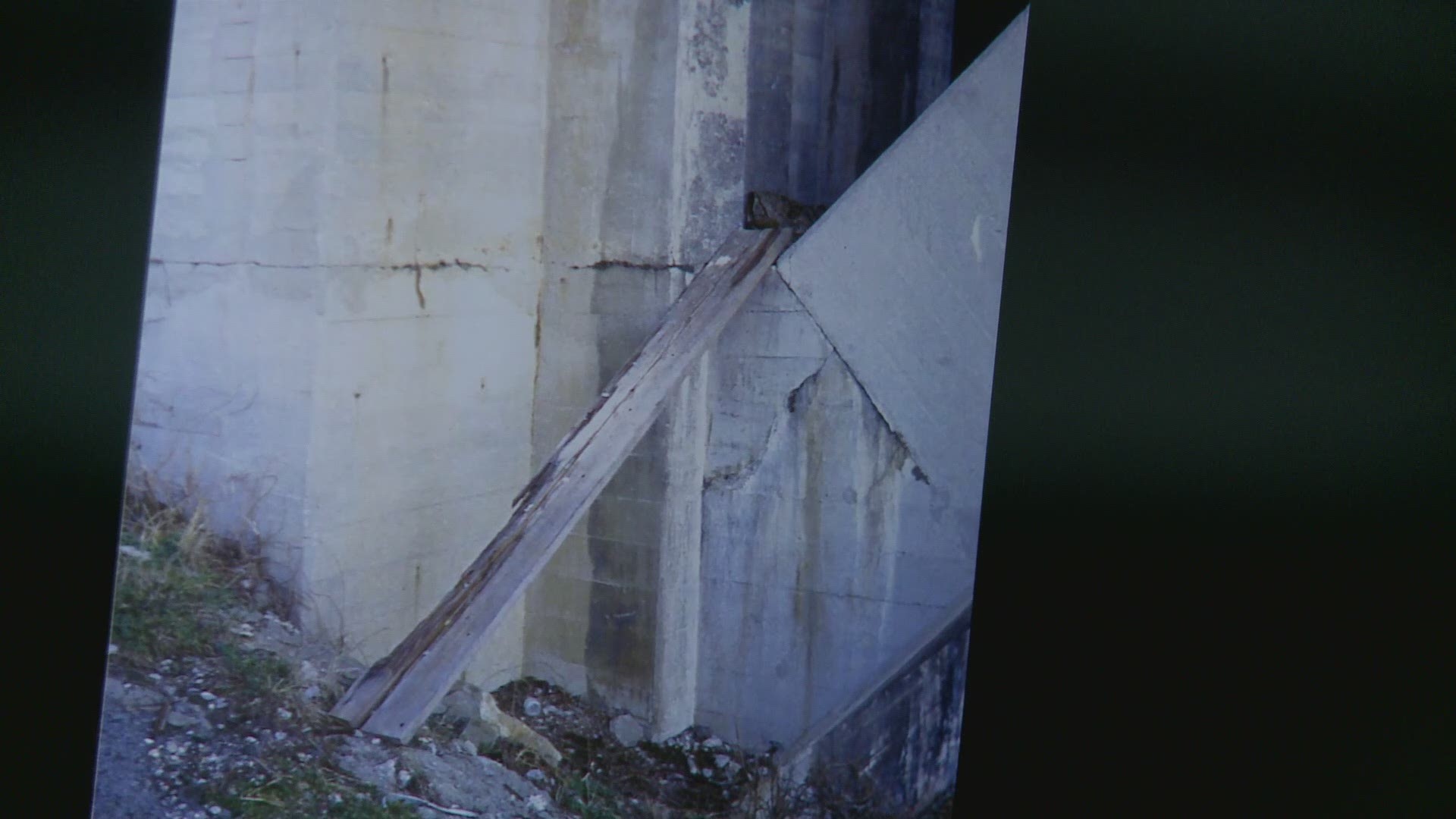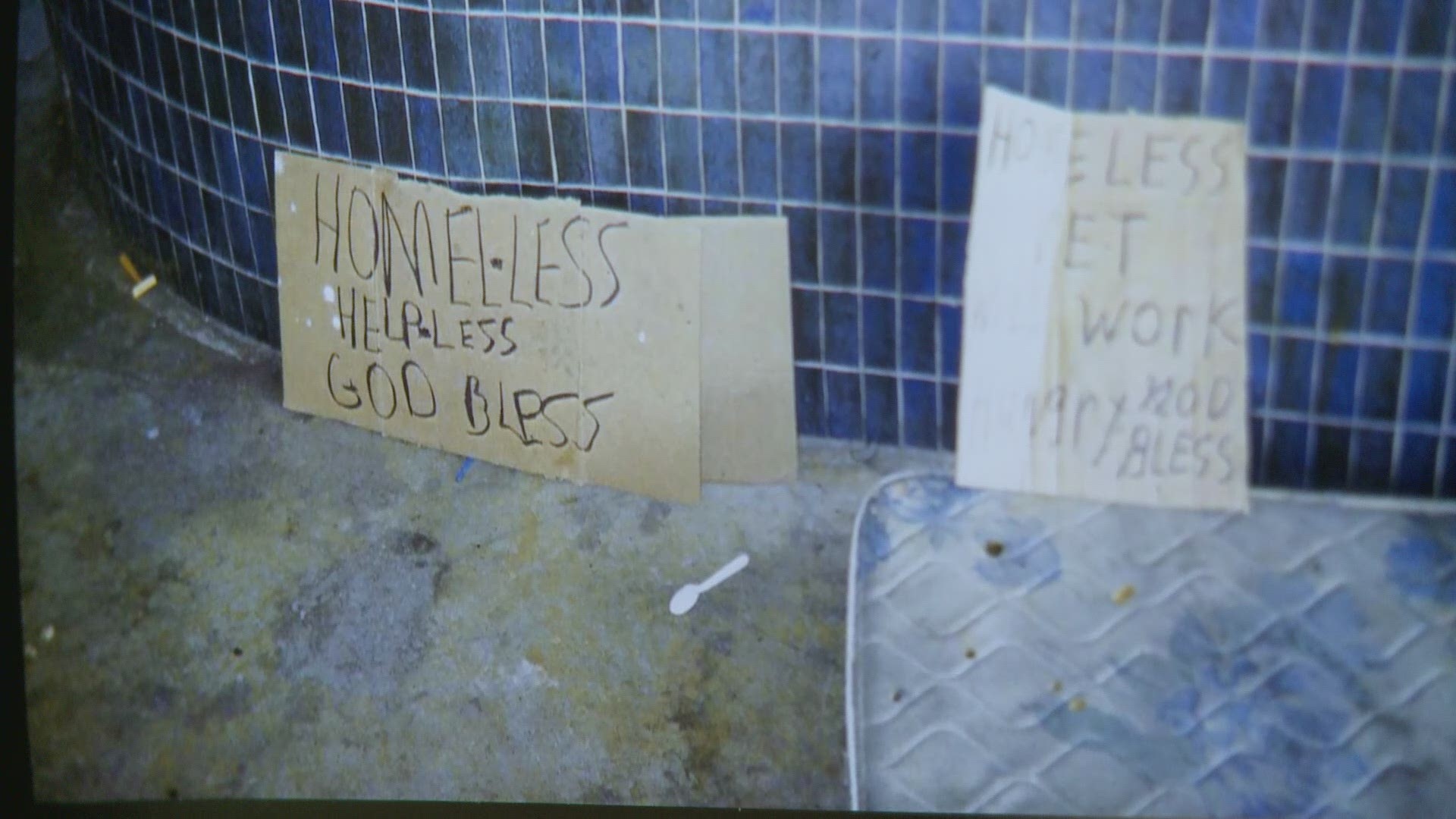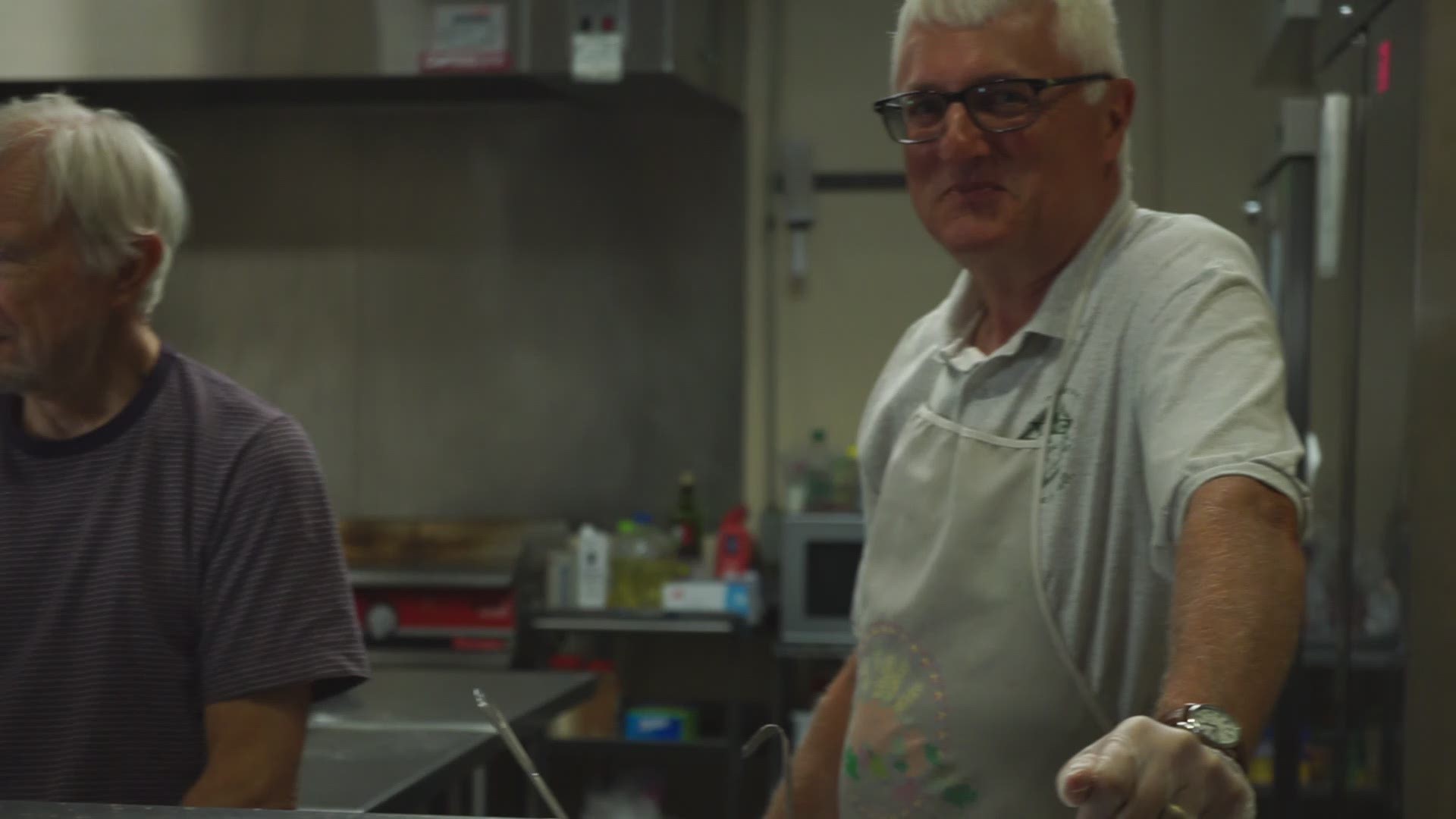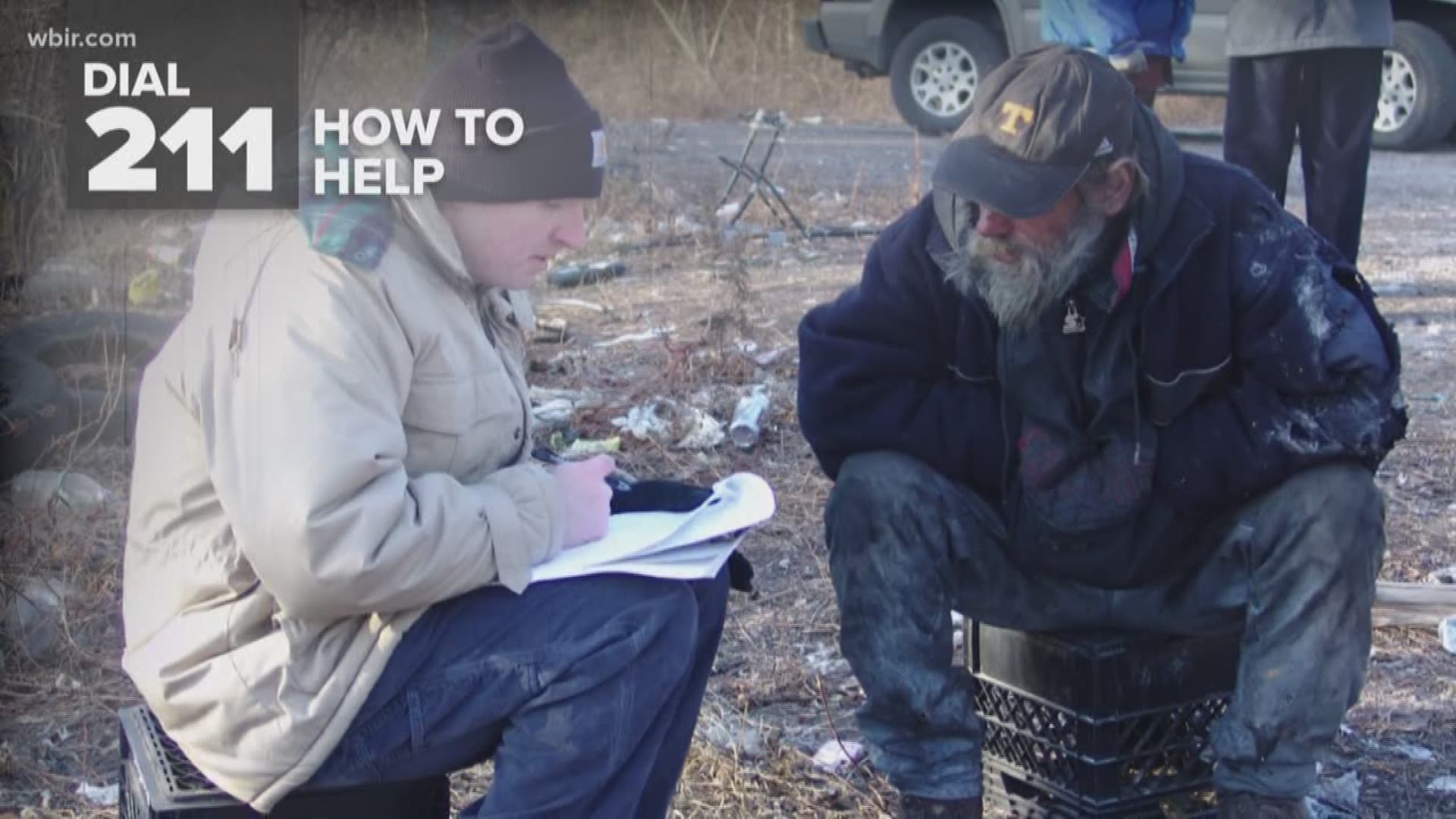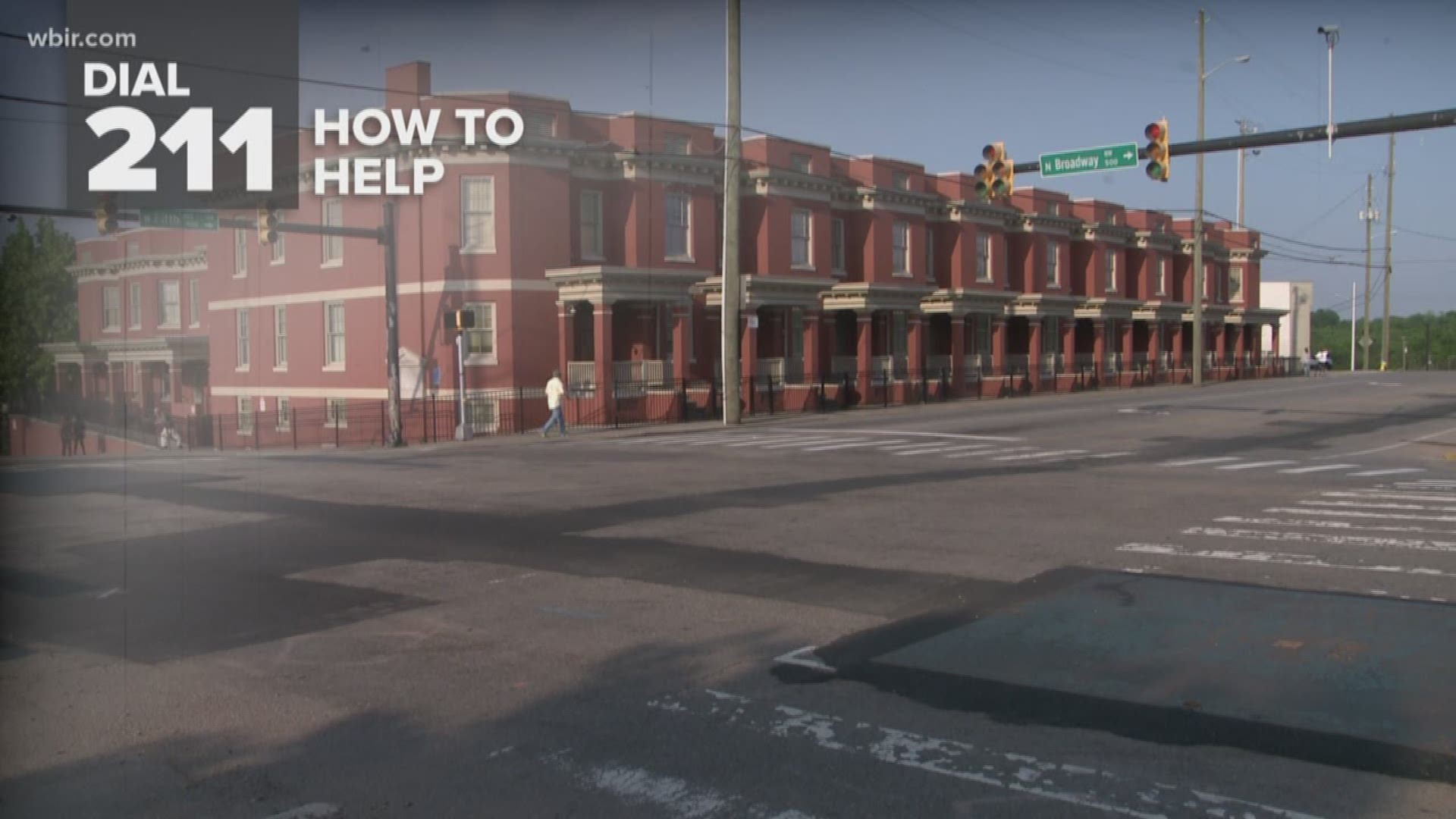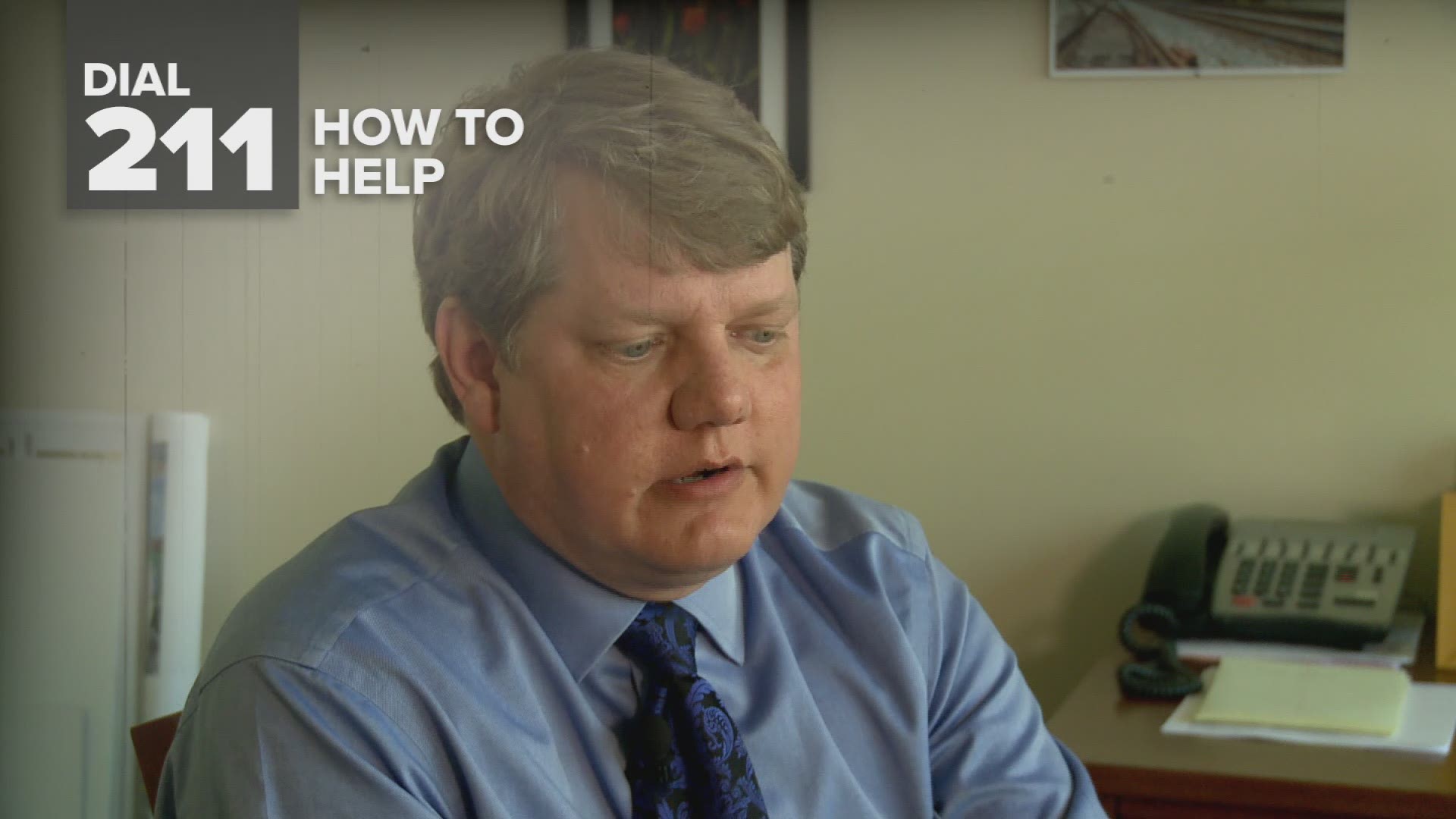Out of the Shadows: Hope on the Streets | Knoxville's homeless
In the mid-80s, homeless camps were scattered. From Broadway to buildings downtown, to Western Avenue and a string of camps along the railroad tracks, experts found homelessness spread out across the city. Flash forward 30 years and we find a much greater density of homeless in a small area near shelters along Broadway.
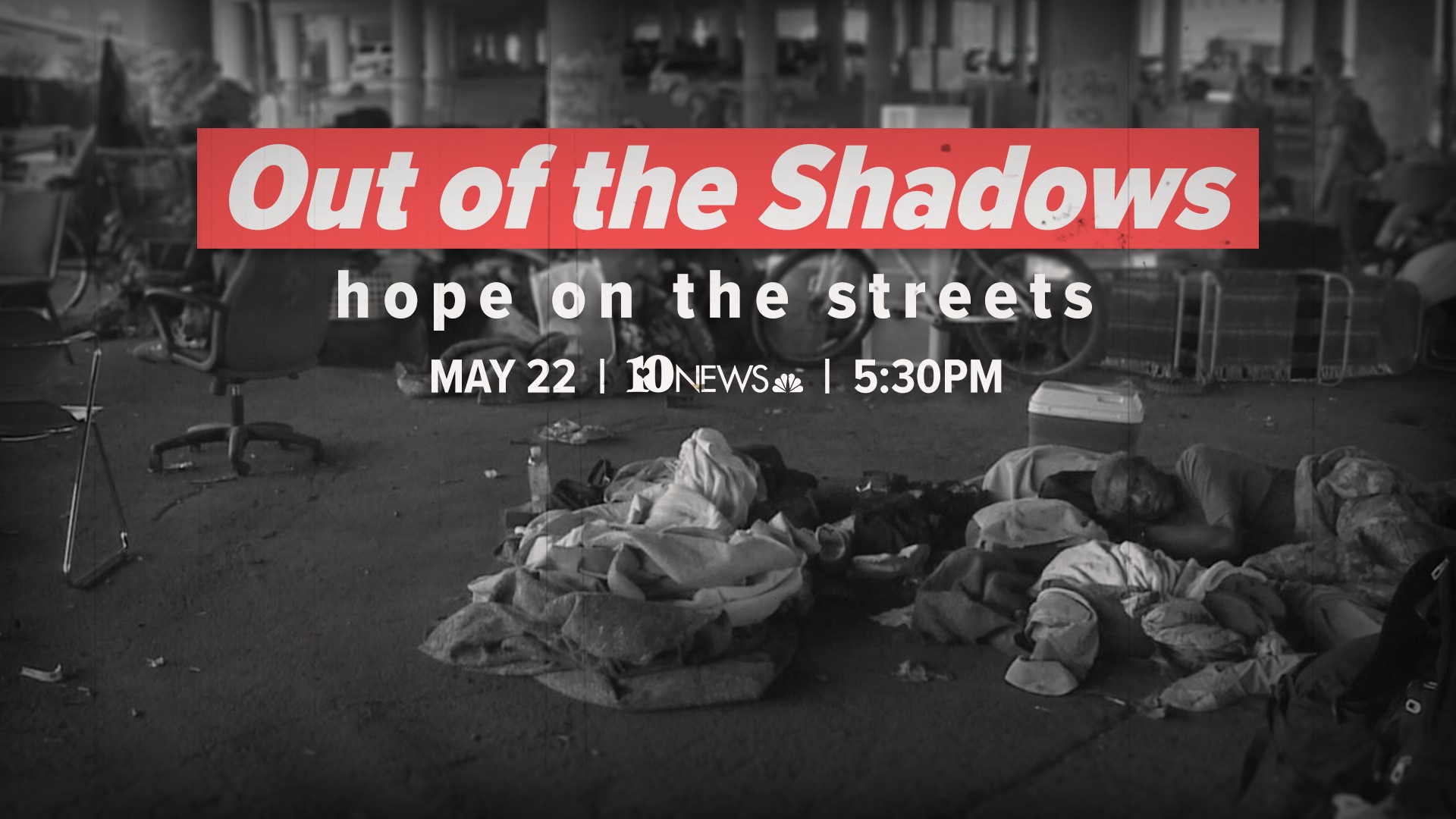
If viewing on the WBIR app, click HERE for the best story experience.
Watch more videos on the WBIR Youtube page: Click here
WBIR aired a 30-minute special on homelessness in Knoxville at 5:30 p.m. on Tuesday, May 22, 2018. You can re-watch that special at the bottom of this article.
The most recent data shows more than 9,000 people in Knoxville received some kind of homeless services in 2016.
But, the number of people on the streets at any given time is constantly changing. The data comes from an annual report on the homeless in Knoxville.
Every time 10News posted a story about homelessness on our Facebook page, over the last six months you told us exactly what you think of the issue.
If you've driven down North Broadway near Downtown Knoxville, you know homelessness is a problem. But what is really causing it?
Is anyone doing anything about it?
And is there anything you can do to help?
History of homelessness in Knoxville
The one thing most experts in Knoxville agree on is that the problem has changed in the last 20 to 30 years.
"If you go back to the late 80’s, early 90’s there’s a lot of effort to make people comfortable on the street. Furnished soup, blankets, concern about where they would have bathrooms," Dr. Roger Nooe said.
►Watch | Out of the Shadows: A Sad Sight
Nooe helped write the book on homelessness in Knoxville. His annual report dates back to 1986 and marks the start of the modern effort to end homelessness in Knoxville.
In the mid-80s, homeless camps were scattered. From Broadway to buildings downtown, to Western Avenue and a string of camps along the railroad tracks, experts found homelessness spread out across the city. Flash forward 30 years and we find a much greater density of homeless in a small area near shelters along Broadway.
In 1986, the vast majority of the homeless were white men in their 30s to 40s. Almost 43 percent had served in the military. Many suffered from problems tied to alcohol but many also said they had a job. Lots of homeless people were on the move...transient. The total number of chronic homeless in any given month was 800.
Out of the Shadows: Hope on the Streets | Homelessness
Knoxville's homeless status
Today, the profile is far different from what it was in the mid-80s.
The number of chronically homeless people sits at around 300. Those are the people who have been homeless for more than a year.
Nearly 60 percent of Knoxville's homeless say they were born in Tennessee and 35 percent say they have a job.
The others are either acutely homeless, displaced by something like an eviction or a fire at their homes, or they are episodically homeless, who come and go from the streets.
One of the biggest concerns is a spike in people suffering from mental illness on the street. More than 60 percent report receiving some treatment for mental illness.
People who work with the homeless say mental illness is extremely high among that population. They also report they see a lot of drug and alcohol use. Almost 60 percent report a drug addiction.
Nearly 20 percent say they've had problems with drug and alcohol.
Knoxville Police officer Thomas Clinton has worked with the homeless in Knoxville for three years.
"I don't make many arrests. I usually focus on getting them to assistance and getting them housed," he said. "If they come back out here, they're right back in the same mess that they're in. It's just like sending an alcoholic to a bar."
►Watch | Collecting Cans
One big success: the number of homeless veterans is down to just 10 percent. The total number of chronic homeless doubled to 1,600 a month which is far greater growth than the city's overall population increase of any 5 percent in that same three decades.
Knoxville is also seeing a surge in homelessness among African Americans and more women and children on the streets.
'Housing First' approach
Homeless experts say there's no 'one size fits all' approach to getting people off the streets.
If you press people who study homelessness and work on the streets, they blame the changes on the loss of housing.
Years ago, low income housing was destroyed in this city and across the country in a push for urban renewal or to remake parts of downtown.
►Watch | Under the Bridge
The state also shuttered Lakeshore in 2012. At one time, that permanent residential care center used to treat more than 2,000 patients with mental illness. So what's the city actually doing to help?
Knoxville is all in on "Housing First". That approach puts someone in a permanent home in the hope that having a place to sleep will help them seek addiction treatment, counseling, or a job.
"We looked at the data and looked at what others had done and saw that it does, in fact, work," Michael Dunthorn, with the city of Knoxville, said. "It's absolutely as successful as we thought it would be."
►Watch | Elaborate Campsites
Dunthorn has worked on the city's efforts to solve homelessness for nearly 2 decades.
"It's the stability of that housing that helps them resolve other issues that had made them become homeless in the first place," Dunthron said.
►Watch | In the Back of the Truck
The idea was based on how that approach worked in several bigger cities like Seattle, New York, Philadelphia and Atlanta.
Today, every single state in the country has at least one organization with a 'housing first' approach.
Faces of homelessness
"Even though I struggled, I didn't drop out. I graduated high school," Peak said.
Jonathan Peak lives in Minvilla Manor. He graduated from Fulton High School in 2009 and played on two state champion basketball teams.
After graduation and a stint in the job corps,he struggled to find a job.
"I was staying with friends. I was going house to house," he said.
►Watch | Beauty School Dropout
Now, he's lived in the same place since 2011. He has a part-time job as a case manager and a community to support him.
"Without those resources and without those expectations, to be honest, I would be out there," Peak said.
He's even working toward moving into his own independent apartment. And -- he says it's thanks to Volunteer Ministry Center and an approach to homelessness called "Housing First".
Minvilla Manor, a 57-unit permanent supportive housing development, opened in 2010. It cost more than $7 million to renovate the historic building. That's $123,000 per apartment.
It costs $435,000 a year to run the development. That's about $635 per unit.
There are nearly 400 units of permanent supportive housing in Knoxville.
The experts say those 400 units just aren't enough.
"That's where we are facing a critical shortage, we don't have enough housing," Nooe said.
►Watch | Making the Shelter
Since Minvilla Manor opened 8 years ago, the city says it hasn't seen any new permanent supportive housing developments on that scale.
Several smaller facilities have opened and the city has added money to an incentive program for developers who want to build affordable housing.
"The city is not going to be able just entirely fund a development on its own. But, we can put resources in that will close gaps," Dunthorn said.
For Jonathan, his 7-year stay at Minvilla is a typical one. About half of the people who live there have been there since it opened 8 years ago.
The facility has several requirements: everyone there must be experiencing chronic homelessness, they have to have at least a moderate disability, and they all pay rent based on their income. The minimum rent is $50 per month.
Unfortunately, not everyone can get in.
"You've got to fit in that sweet zone where you don't make enough to be not eligible for the programs, but just make enough that you can afford what is available," Knoxville Police Officer Thomas Clinton said.
Minvilla includes 57 of the nearly 400 units of permanent supportive housing in Knoxville.
That breaks down into several programs targeted at different needs: Veterans, homeless people, or people with various illnesses.
"A theme of our community plan to address homelessness is that it's the community's problem and it's going to take all of us to solve it," Dunthorn said.
Out of the Shadows: Hope on the Streets
The given names for these two homeless advocates are Roosevelt and Carl. "Street Angels" might be more fitting.

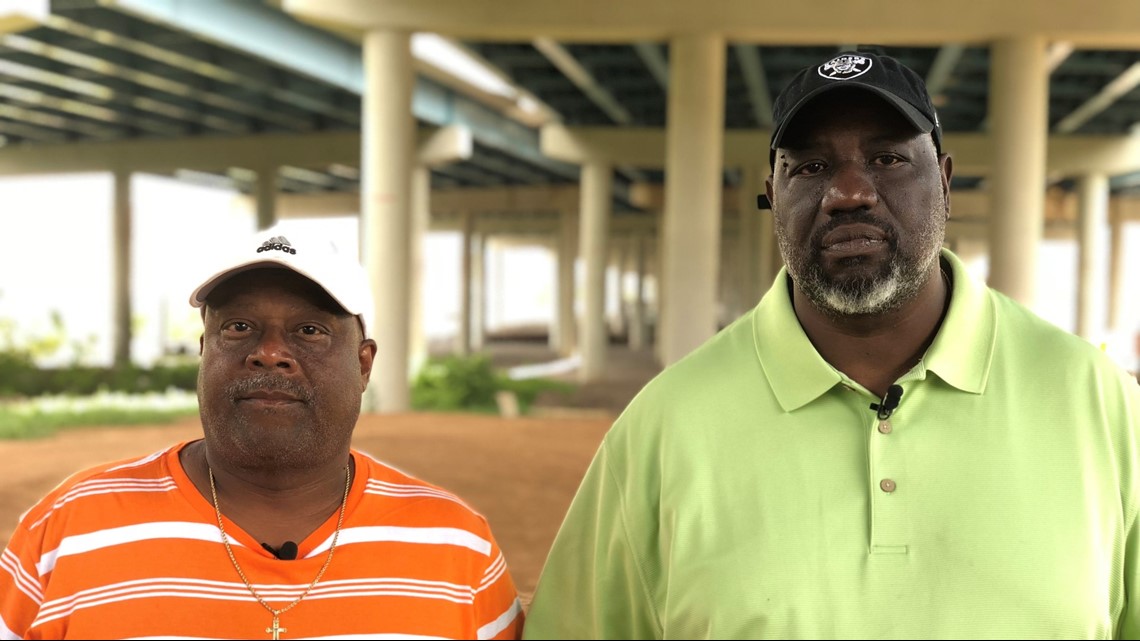
Both have worked daily on the streets of Knoxville for two decades.
“I love helping people. I’ve always been a people person. I enjoy helping people I can help. There’s a lot of people in situations where we can find ways to get them out of being homeless and that’s our job to basically do that.”
They make up part of the frontline team trying to help homeless people.
"I've been on the street, on and off for 43 years," a homeless man named Country said.
Country is his street name.

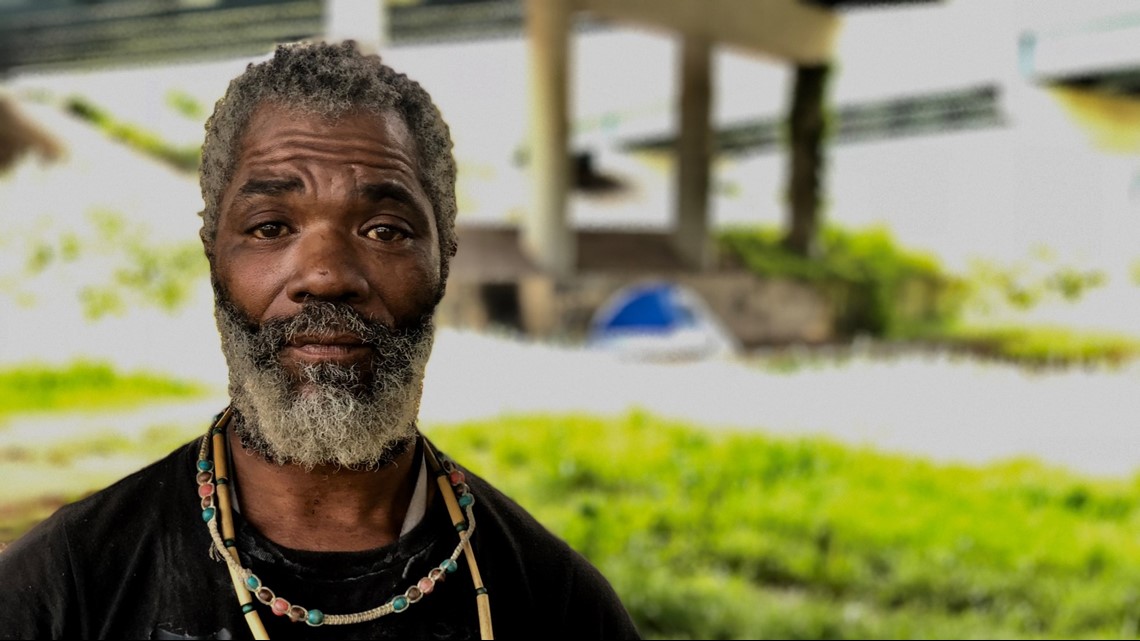
He says his exact income is $650. He can't afford to live anywhere but on the street. Public housing isn't an option.
CAC workers say he applied for KCDC Housing but he has a felony for vehicular homicide and KCDC wont allow him to get housing.
The Knoxville native admits his mistake and served four years in prison for the charge. Now, he faces a life sentence on the streets.
"I'm tired, I'm really tired of living this life," he said.
And hundreds of others are facing the same situation.
"It's just a part of the way things are here in Knoxville. That's just the way things are," a CAC worker said.
Country says this wasn't part of his plan.
“If I could just get out of this situation, I wouldn’t have no drinking problem. Most of the people that do drugs, to live this life is to ask it. To survive it, you gotta have something to take your edge off," he said. "I wanted to grow up and become a truck driver, but now I’ve been out here for so long, it became a part of my life.”
Homeless children and families
At any given point, 500 children in Knox County are homeless.
Knox County schools tracks how many students are without a home and a spokesperson says the number has remained fairly static over the last decade.
One of many families dealing with homeless in Knoxville is Makiya Chigano's.
►Watch | The Infant Under The Bridge
She's 19 years old and spent 7 years in foster care.
"I think that's why it was so easy for me to be homeless, caus I could just pick up and run away, it's easier to run away than it is to deal with things," Chigano said.
18 and homeless, she became pregnant.
"I cried my eyeballs out, I cried for three hours, I'm not gonna even lie, I cried my eyeballs out," she said.
She spent most of her pregnancy on the streets then brought little Noah into the world.
Now, she and five-month-old Noah are looking for more permanent housing. Chigano wants his life to be a life worth living.
"I'm just like, am I a bad mom? I just have to reassure myself sometimes, cause it's harder, it's hard. I don't want him to remember all this," she said. "I don't want him to remember us struggling so hard, I don't want him to remember us pretty much bounce from place to place, because it's hard, it's hard on me dealing with it. I can only imagine, if he could talk, I could just only imagine the stuff that he's thinking about."
Experts agree a key reason more families are ending up on the streets is the loss of affordable housing. In the 1950s and 60s, the city leveled low income housing east of downtown.
It was part of a nationwide trend toward urban renewal, or remaking parts of downtown.
What's worked and what hasn't
The city adopted a ten-year plan to end chronic homelessness in 2005.
Some of its goals: move people to housing first, stop releasing people from jail or mental health facilities directly to the streets, improve coordination between the groups that help, create more economic opportunities, and recognize homelessness as a challenge that affects the entire community.
►Watch | The Dilemma of Panhandling
In 10 years, the plan didn't end chronic homelessness. Knoxville created a new plan to address homelessness in 2014, which echoes many of the same goals.
The reality of life on the street can be summed up in a word: complicated.
Since 1964, Knoxville-Knox County Community Action Committee, or CAC, has used federal, state, and local dollars to reach out to people on the street.
Now, Knoxville is all in on 'Housing First'. That approach puts someone in a permanent home in the hope that having a place to sleep will make them want to seek addiction treatment, counseling, or a job.
"It's absolutely as successful as we thought it would be," Knoxville's Homeless Program Coordinator, Michael Dunthorn, said. "It's the stability of that housing that helps them resolve other issues that had made them become homeless in the first place."
Knoxville's homelessness in 2018
As of March, more than 800 people in the city lived on the streets.
In the first three months of 2018, 70 percent of the people who sought services from homelessness in Knoxville saw a positive change in their housing status.
That's a 5 percent increase over the last year, according to the Knoxville Homeless Management Information System.
The database shows a daily 'snapshot' of the homeless in Knoxville. It shows people returning to shelters after finding permanent housing is down 20 percent over the last year. The average time it takes for someone who is homeless to find a home is 16 day which is down more than half.
Find a shelter
If you're not sure where you or a loved one fits in, call 211 to get a general referral.
P.O. Box 10184, Knoxville, TN 37939-0184
Phone: 865-584-2822
418 North Broadway
Knoxville, TN 37917
Phone: 865.673.6540
Salvation Army - Knoxville
409 North Broadway
P.O. Box 669, 37901-0669, Knoxville
Phone: 865.525.9401
P.O. Box 848, Alcoa TN 37701
1414 Sevierville Rd, Maryville
Phone: 865.983.7135
806 W Main St
P.O. Box 6747, 37864, Sevierville
Phone: 865.908.4010
201 W. Springdale Avenue
Knoxville, TN 37917
Phone: (865) 637-9711
3009 Lake Brook Blvd.SamPlc
Knoxville, TN 37909
(865) 684-1880
Program Leader: Rhea Ennist – rennist@ccetn.org
How you can help
Homelessness is a constant dilemma for the city and for the organizations who are working to help people find homes.
Organizations that do this work every day say the best way to make an impact is to volunteer.
There are dozens of groups in Knoxville that work with the homeless and every one of them needs help.
People who work with homelessness in Knoxville recommend you volunteer with groups that are a part of a network working with the city. They say that prevents you from causing more harm than good.
"There are good-hearted and kind folks in our community who will go and pass out food, clothing, those kinds of things for folks who they may see under the bridge. When they are doing that, that is not helping the homeless," said Bruce Spangler, who runs Volunteer Ministry Center. "Sometimes when we are doing those kinds of things, it's mostly about us and not about them."
General referral line: 211
Knox County Homeless Coalition: This website has several suggested places to volunteer at or donate to.
Knoxville Community Dashboard on Homelessness: Quarter 1 - 2018
Re-watch the special
WBIR aired the following special on Tuesday, May 22, 2018 at 5:30 p.m.
Watch more videos on the WBIR Youtube page: Click here

